3 Volumes
Culture: The Flavors of Philadelphia Life
Philadelphia began as a religious colony, a utopia if you will. But all religions were welcome, so Quakerism mainly persists in its effects on others, both locally and in America, in Art, clubs, and the way of life.
Philadelphia Since the Industrial Revolution
The Industrial Revolution began about the time America declared Independence. The young nation faced a clean slate and boundless opportunities.
Sociology: Philadelphia and the Quaker Colonies
The early Philadelphia had many faces, its people were varied and interesting; its history turbulent and of lasting importance.
Literary Philadelphia
Literary
Literary Figures in the Philadelphia Region
John P. Marquand Born in Delaware, lived in Gardner's Cottage of Shipley/Bringhurst Estate (now, Rockwood Museum). The Late George Apley
Dudley Cammett Lunt 1896-1981. Lawyer, historian of Delaware history, lived in Rockwood. The Bounds of Delaware, Tales of Delaware Bench and Bar, Taylor's Gut in the Delaware State (Mason and Dixon), The Road to the Law Contact John P. Reid.
J. Gould Cozzens, By Love Possessed
Zane Gray
Edgar Allen Poe
E. Digby Baltzell Quaker Philadelphia and Puritan Boston
Struthers Burt Philadelphia Holy Experiment
Nathaniel Burt Perennial Philadelphians
"The Philadelphia Rosary":
Morris, Norris, Rush, and Chew,
........................................Drinker, Dallas, Coxe, and Pugh,
........................................Wharton, Pepper, Pennypacker,
........................................Willing, Shippen and Markoe
Pearl Buck The Good Earth
John Updike Run, Rabbit
James Michener Tales of the South Pacific
Abbie Hoffman
Margaret Mead Growing Up in Samoa
John O'Hara Appointment in Samara
Owen Wister The Virginian
Benjamin Franklin Autobiography
Fanny Kemble Journal of a Residence on a Georgian Plantation 1838-1839
Silas Weir Mitchell Hugh Wynne, Quaker
J.D. Salinger
Edward Albee
REFERENCES
| Tales of the Delaware Bench and Bar: Dudley C. Lunt ASIN: B005FFGEO6 | Amazon |
Logan, Franklin, Library
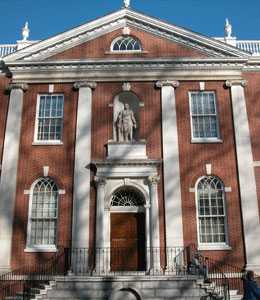
|
| The Library Company of Philadelphia |
Jim Greene is the librarian of the Library Company of Philadelphia, and one of the leading authorities on James Logan, the Penn Proprietors' chief agent in the Colony. Since Logan and Ben Franklin were the main forces in starting the oldest library in America, knowing all about Logan almost comes with the job of Librarian. We are greatly indebted to a speech the other night, given by Greene at the Franklin Inn, a hundred yards away from the Library.
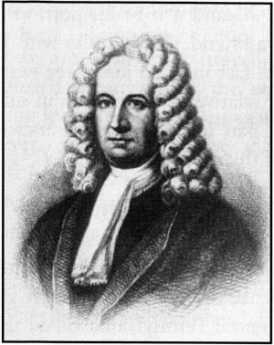
|
| James Logan |
Logan has been described as a crusty old codger, living in his mansion called Stenton and scarcely venturing forth in public. He was known as a fair dealer with the Indians, which was an essential part of William Penn's strategy for selling real estate in a land of peace and prosperity. Unfortunately, Logan was behind the infamous Walking Purchase, which damaged his otherwise considerable reputation. Logan must have been a lonesome person in the frontier days of Philadelphia because he owned the largest private library in North America and was passionate about reading and scholarly matters. When he acquired what was the first edition of Newton's Principia, he read it promptly and wrote a one-page summary. Comparatively few people could do this even today. It's pretty tough reading, and those who have read it would seldom claim to have "devoured" it.
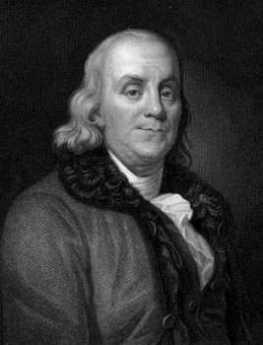
|
| Benjamin Franklin |
Except young Ben Franklin, who never went past second grade in school. The two became fast friends, often engaging in such games as constructing "Magic Squares" of numbers that added up to the same total in various ways. For example, Franklin doodled off a square with the numbers 52,61,4,13,20,29,36,45 (totaling 260) on the top horizontal row, and every vertical row beneath them totaling 260, as for example 52,14,53,11,55,9,50,16, while every horizontal row also totaled 260 as well. The four corner numbers, with the 4 middle numbers, also total 260. Logan constructed his share of similar games, which it is difficult to imagine anyone else in the colonies doing at the time.
Logan and Franklin together conceived the idea of a subscription library, which in time became the Library Company of Philadelphia in 1732. The subscription required of a library member was intended to be forfeited if the borrower failed to return a book. Later on, the public was allowed to borrow books, but only on deposit of enough money to replace the book if unreturned. We are not told whose idea was behind these arrangements, but they certainly sound like Franklin at work. More than a century later, the Philadelphia Free Library was organized under more trusting rules for borrowing which became possible as books became less expensive.
Logan died in 1751, the year Franklin at the age of 42 decided to retire from business -- and devote the remaining 42 years of his life to scholarly and public affairs. He first joined the Assembly at that time, so he and Logan were not forced into direct contention over politics, although they had their differences. How much influence Logan exerted over Franklin's plans and attitudes is not entirely clear; it must have been a great deal.
Quotes from B. Franklin, Curmudgeon
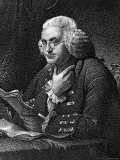
|
| Ben Franklin |
~ I guess I don't so much mind being old, as being fat and old.
~ Many foxes grow Grey, but few grow good.
~ If it is the design of Providence to extirpate these savages in order to make room for the cultivation of the earth, it seems not improbable that rum may be the appointed means.
~ A countryman between two lawyers is like a fish between two cats.
~ Remember not only to say the right thing in the right place but far more difficult still, to leave unsaid the wrong thing at the tempting moment.
~ The Constitution only guarantees the American people the right to pursue happiness. You have to catch it, yourself.
~ The definition of insanity is doing the same thing over and over and expecting different results.
~ The man who trades freedom for security does not deserve, nor will he ever receive, either.
~
Those who govern, having much business on their hands, do not generally like to take the trouble of considering and carrying into execution new projects. The best public measures are therefore seldom adopted from previous wisdom, but forced by the occasion.
- The greatest monarch on the proudest throne is still obliged to sit on his own arse.
-
Rise and Fall of Books
| ||
| The Library Company of Philadelphia |
John C. Van Horne, the current director of the Library Company of Philadelphia recently told the Right Angle Club of the history of his institution. It was an interesting description of an important evolution from Ben Franklin's original idea to what it is today: a non-circulating research library, with a focus on 18th and 19th Century books, particularly those dealing with the founding of the nation, and, African American studies. Some of Mr. Van Horne's most interesting remarks were incidental to a rather offhand analysis of the rise and decline of books. One suspects he has been thinking about this topic so long it creeps into almost anything else he says.
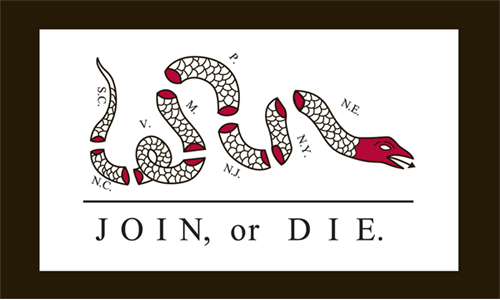 |
| Join or Die snake |
Franklin devised the idea of having fifty of his friends subscribe a pool of money to purchase, originally, 375 books which they shared. The members were mainly artisans and the books were heavily concentrated in practical matters of use in their trades. In time, annual contributions were solicited for new acquisitions, and the public was invited to share the library. At present, a membership costs $200, and annual dues are $50. Somewhere along the line, someone took the famous cartoon of the snake cut into 13 pieces, and applied its motto to membership solicitations: "Join or die." For sixteen years, the Library Company was the Library of Congress, but it was also a museum of odd artifacts donated by the townsfolk, as well as the workplace where Franklin conducted his famous experiments on electricity. Moving between the second floor of Carpenters Hall to its own building on 5th Street, it next made an unfortunate move to South Broad Street after James and Phoebe Rush donated the Ridgeway Library. That building was particularly handsome, but bad guesses as to the future demographics of South Philadelphia left it stranded until modified operations finally moved to the present location on Locust Street west of 13th. More recently, it also acquired the old Cassatt mansion next door, using it to house visiting scholars in residence, and sharing some activities with the Historical Society of Pennsylvania on its eastern side.
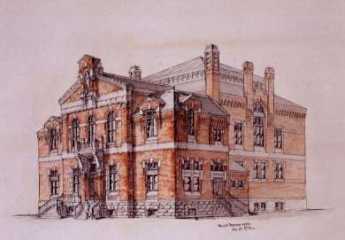 |
| Old Pictures of the Library Company of Philadelphia |
The notion of the Library Company as the oldest library in the country tends to generate reflections about the rise of libraries, of books, and publications in general. Prior to 1800, only a scattering of pamphlets and books were printed in America or in the world for that matter, compared with the huge flowering of books, libraries, and authorship which were to characterize the 19th Century. Education and literacy spread, encouraged by the Industrial Revolution applying its transformative power to the industry of publishing. All of this lasted about a hundred fifty years, and we now can see publishing in severe decline with an uncertain future. It's true that millions of books are still printed, and hundreds of thousands of authors are making some sort of living. But profitability is sharply declining, and competitive media are flourishing. Books will persist for quite a while, but it is obvious that unknowable upheavals are going to come. The future role of libraries is particularly questionable.
Rather than speculate about the internet and electronic media, it may be helpful to regard industries as having a normal life span which cannot be indefinitely extended by rescue efforts. No purpose would be served by hastening the decline of publishing, but things may work out better if we ask ourselves how we should best predict and accommodate its impending creative transformation.
www.Philadelphia-Reflections.com/blog/1470.htm
Edgar Allan Poe, 1809-1849
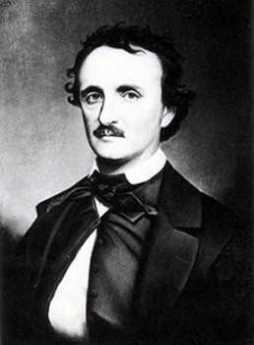
|
| Edger Allan Poe |
Between the Federalist period and the Civil War, Philadelphia quadrupled in population, mostly by Irish and black immigration responding to the urbanization induced by the Industrial Revolution. The social boundaries of this period were established by the U.S. Capital moving away to Washington, and at the other boundary, the constrained urban population was suddenly released to the suburbs by the City-County Consolidation of 1854. During that time, the Northern Liberties on the other side of Callowhillwere very close by, but nearly devoid of law and order. At least along the Delaware River, the scene was like Las Vegas as imagined by Charles Dickens. Within the increasingly congested boundaries of the city itself, tuberculosis, alcoholism, riots and religious revivalism are all mentioned prominently. While it was the time of Nicholas Biddle and the Bank, and the establishment of the Drexel empire, it was a gothic period quite adequately symbolized by Ethan Allan Poe, writing for Graham's Magazine. His father abandoned the family, his mother and later his wife died of tuberculosis, he was definitely an alcoholic and probably manic-depressive. He and Charles Brockton Brown invented the gothic novel, gothic poetry, the modern murder mystery. Poe only lived in Philadelphia for six years but lived in seven different locations, the most famous of which is now part of the National Park Service, even though it is located off Spring Garden Street. Yes, he was born in Boston but lived there only briefly, and yes, he died in Baltimore, by dropping dead in the street while traveling through. He was scarcely a prototypical Philadelphian, but he was certainly a symbol of his age.

|
| Grip the Raven |
There is a big stuffed Raven named Grip in the Free Library which belonged to Charles Dickens and is claimed to be the inspiration for Poe's Raven; it certainly has an ominous look, whatever its provenance. Poe offered his famous poem to Graham, who rejected it but gave him $15 as an act of charity. Another magazine paid him $9 to publish it. This poem was widely included in elementary school anthologies by the Philadelphia book publishing industry, and its simple repetitions with a scary atmosphere continue to be popular with children. The Murders in the Rue Morgue were the beginning of the modern murder mystery, and seem to have started Brockton Brown off on his establishment of the Philadelphia Gothic novel, echoing the whole dark and menacing Poe tradition. From the descriptions, Poe's alcohol problem was not so much related to the volume of consumption as to the violent manias which just a small quantity provoked in him. If your mother and your wife both died of tuberculosis, it's a fair bet you had it, too. At the age of 40, he was gone.
French Philadelphia
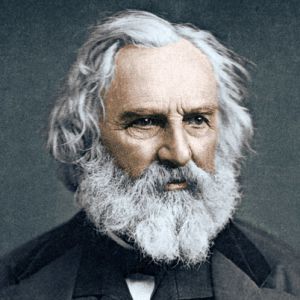
|
| Henry Wadsworth Longfellow |
Since American relations with France are a little strained at the moment, it may not be completely welcome to hear it said that Philadelphia food is Creole. The reference is not to the several downtown French restaurants of outstanding quality, but to the two episodes when Philadelphia experienced waves of French immigration. The first of these was during the French and Indian War, when the Acadian French ("Cajun") were driven out of Nova Scotia, largely went to Louisiana and then were allowed to return. A lot of them stopped off in Philadelphia both going and coming. Henry Wadsworth Longfellow depicted, in his poem Evangeline, the tearful reunion of Evangeline and Gabriel in the hospital. And since for sixty years the Pennsylvania Hospital was the only hospital in the country, Longfellow had to put them here.
The second wave of French immigration was provoked by the guillotine in Paris, and the black revolution in French Haiti. Most people today are unaware that Talleyrand lived here, and LaRochefoucauld. The Duke of Orleans, future king of France, lived at 4th and Locust Streets, proposed to a (rich) Philadelphia lady, and was rejected by her father ("Sir, if you do not become king of France, you will be no match for her, and if you do become king, she will be no match for you.") Napoleon's brother Joseph lived at 9th and Spruce, and one of his marshals lived at 6th and Spruce. Really. Talleyrand had a deformed foot, and this somehow made him pals with Governor Morris who had a wooden leg. This friendship was part of the reason the Louisiana Purchase was possible, because they shared the favors of the same French lady, and had frequent occasion to meet. Both Franklin and Jefferson were ambassadors to France, it may be remembered, and for a while, Jefferson was quite a fan of the French Revolution, although the treatment of LaFayette by the French Revolutionaries did not exactly encourage that. The French treated Franklin like a God, but then so did Mozart and the King of England, and Franklin harbored many bitter memories of the French and Indian War all the while he was romancing the French into bankruptcy to pay for our revolution. The French refugees from Haiti brought Yellow Fever with them, and Dengue too, thus definitively terminating Philadelphia's hope of remaining the permanent capital of the nation.
It was during this Francophone period that Philadelphia cuisine acquired some characteristics which allow some food historians to call it Creole. Philadelphia Pepper Pot soup, for example, substituted tripe for terrapin. Those who know about these things say that many dishes now thought to be distinctly Philadelphian in fact had a French origin.
Fanny Kemble
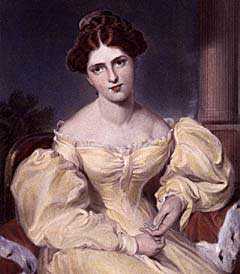
|
| Fanny Kemble (Sully) |
Frances Anne Kemble, universally known as Fanny, was just about the most magnificent Philadelphia woman of the Nineteenth Century. She spent much of her time abroad and others claimed her, but she was ours. Coming from a famous English theater family, the niece of Mrs. Siddons and the daughter of the founder of Covent Gardens, she quickly rescued the failing family fortunes by becoming the most striking Shakespearean ingenue of the time. It took very little time for her to know Lord Byron, Thackeray, and various other luminaries of the literary and artistic world of Europe, along with Queen Victoria. One might as well say she knew everybody unless one made the point that everyone knew her.
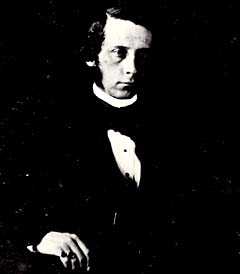
|
| Pierce Butler |
On a theatrical grand tour of America she met and married the Philadelphian Pierce Butler, one of the richest bachelors in the nation, heir to huge estates in Georgia. She had plenty of other choices, including the most dashing and romantic devil of the century, Trelawny. That glamorous friend of Byron's had been the one to drag Percy Shelley's body from the ocean, and was surely the greatest heartthrob of the century. Toward the end of her life, Fanny demonstrated the range of her appeal by totally subjugating the intellectual novelist Henry James, who was 34 years younger than she was. Her portraits by Sully now hang in the Pennsylvania Academy of the Fine Arts and in the Rosenbach Museum. Although Sully was said to have glamorized her a bit, her movie star qualities are evident. But appearance alone could not have mesmerized Henry James, known in literary circles as The Master. She was evidently one of those powerfully self-assured personalities encountered from time to time, who dominates every conversation, fills every room she enters, inspiring admiration rather than jealousy. As a youth, she was enchanting, as a mature woman, magnificent. Henry James described her as having "an incomparable abundance of being."
But this was not just another Cleopatra. Fanny Kemble had two personal achievements of enduring note. Because of health limitations, she went beyond being a Shakespearean actress to inventing a style of a public reading of Shakespeare, taking all the parts herself. She and Dr. Samuel Johnson were the two successive forces transforming Shakespeare's reputation from the quaint playwright of the past into the permanent towering figure of the English language.
Her other achievement destroyed her private life. As the wife of the owner of a thousand slaves, she led the attack on slavery before the Civil War. During the War, her passionate defense of emancipation was the main factor in persuading the British Government to refuse badly needed loans to the Confederacy. However, the publication of her journals was the last straw in a tumultuous marriage, and Pierce Butler divorced her, taking custody of their daughters, exiling her to England. Southern plantation owners were always short of cash, and realistically one has to acknowledge the strain of demanding to emancipate a thousand slaves, each one worth a thousand dollars. In one of the supreme ironies of a tragic situation, the forced sale of the slaves compelled the Butlers to liquidate an asset just before it was going to be destroyed by wartime events. Butler died in 1863, but she had done him a financial favor.
Fanny's daughter married Dr. Caspar Wistar, of Grumblethorpe and the grounds of present LaSalle College. Her grandson was Owen Wister, the college roommate of Teddy Roosevelt, later the author of The Virginian. Famous for the phrase "If you say that to me, smile", Owen Wister and his roommate created the fable of the romantic cowboy which still dominates movies and fiction, and, from time to time, the Presidency of the United States.
Fanny Kemble Takes the Train South, in 1838
The "Journal of a Residence on a Georgian Plantation in 1838-1839" raised strong feelings against slavery, particularly in Frances Anne Kemble's native England. At the outset of her book, Fanny Kemble describes what it was like to travel on American railroads in 1838.
On Friday morning December 21, 1838, we started from Philadelphia, by railroad, for Baltimore. It is a curious fact enough, that half the routes that are traveled in America are either temporary or unfinished -- one reason, among several, for the multitudinous accidents which befall wayfarers. At the very outset of our journey, and within scarce a mile of Philadelphia, we crossed the Schuylkill, over a bridge, one of the principal piers of which is yet incomplete, and the whole building (a covered wooden one, of handsome dimensions) filled with workmen, yet occupied about its construction. But the Americans are impetuous in the way of improvement and have all the impatience of children about the trying of a new thing, often greatly retarding their own progress by hurrying unduly the completion of their works, or using them in a perilous state of incompleteness. Our road lay for a considerable length of time through flat low meadows that skirt the Delaware, which at this season of the year, presented a most dreary aspect. We passed through Wilmington (Delaware) and crossed a small stream called the Brandywine, the scenery along the banks of which is very beautiful. For its historical associations, I refer you to the life of Washington. I cannot say that the aspect of Wilmington, as viewed from the railroad cars, presented any very exquisite points of beauty....
And first, I cannot but think that it would be infinitely more consonant with comfort, convenience, and common sense, if persons obliged to travel during the intense cold of an American winter in the Northern states, were to clothe themselves according to the exigencies of the weather, and so do away with the present deleterious custom of warming close and crowded carriages with sheet iron stoves, heated with anthracite coal. No words can describe the foulness of the atmosphere...Of course, nobody can well sit immediately in the opening of a window when the thermometer is twelve degrees below zero yet this, or suffocation in foul air is the only alternative...
We pursued our way from Wilmington to Havre de Grace on the railroad, and crossed one or two insets from the Chesapeake, of considerable width, upon bridges of a most perilous construction, and which, indeed, have given way once or twice in various parts already. They consist merely of wooden piles driven into the river, across which the iron rails are laid, only just raising the train above the level of the water. To traverse with an immense train, at full steam-speed, one of these creeks, nearly a mile in width, is far from agreeable...At Havre de Grace we crossed the Susquehanna in a steamboat, which cut its way through the ice an inch in thickness with marvelous ease and swiftness and landed us on the other side, where we again entered the railroad carriages to pursue our road.
Harvard Progressives in Philadelphia
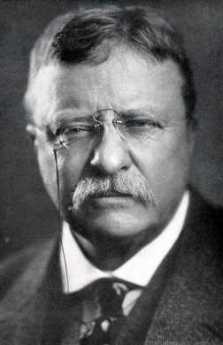
|
| Theodore Roosevelt |
The Progressive movement of the early 20th century is most concisely viewed as a futile social reaction to the vast changes in America caused by urbanization and industrialization after the Civil War. The transcontinental railroad threatened to destroy the wild, wild West, but the enduring environmental movement had overtones of even greater hostility toward industrialization, the cause of it all. In this sense, it joined forces with socialist and labor reform movements, in hating the newly rich, the spoilers, the Robber Barons. It briefly shared sympathies with anti-immigrant groups, while simultaneously expressing great sympathy with the decisions of the people, as opposed to corrupt politicians. There was a strong Calvinist streak in Progressivism, linked back to New England and Harvard its intellectual center. Regardless of any other contradiction, it reflected the viewpoint of Theodore Roosevelt. Teddy Roosevelt, "that damned cowboy" in the view of conservatives, did not invent the ideas of Progressivism, but he surely personified them, illustrated them in action. This confused turmoil of resentments was knocked off the front pages by a real threat to European civilization, the First World War. A terrifyingly well organized German war machine took the place of Robber Barons as a symbol of what was wrong with the world. The crash of 1929 and its ensuing long depression finally put an end to older controversies; it pushed the "reset" button.
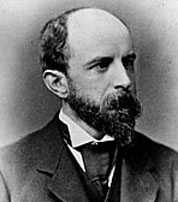
|
| Henry Brooks Adams |
To understand the position of Philadelphia's upper crust during the Progressive era, four or five names need to be fleshed out. Owen Wister and J. William White would be important Philadelphia links to the Bostonians Henry Adams and Henry James. All of them were leading literary figures, and all of them were close friends of Teddy Roosevelt. Roosevelt, it might be recalled, was the author of thirty-four books. This little group of literary giants were members of the leading families of Boston, New York, and Philadelphia; what they said, mattered. Although today Owen Wister is mainly known as the author of The Virginian, the first of the cowboy stories of the Wild West, he was, in fact, an observer of the social climates of not only the West, but the deep South (Lady Baltimore ), and the East Coast ( Romney). Some idea of his political leanings can be gleaned from his presidency of the Immigrant Restriction Society, and the authorship of an article called Shall We Let the Cuckoos Crowd Us From Our Nest . Wister has been called "the best born and bred of all modern writers", referring to his descent
James A. Michener (1907-1997)
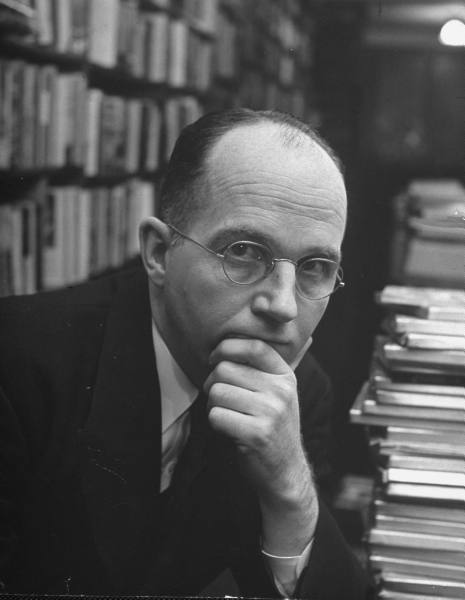
|
| James A. Michener |
James Michener seemed headed for a recognizably Quaker life until show business rearranged his moorings. He was raised as a foundling by Mabel Michener of Doylestown, Pennsylvania, under circumstances that were very plain and poor. Many of his biographers have referred to his boyhood poverty as a defining influence, but they seem to have very little familiarity with Quakers. When the time came, this obviously very bright lad was offered a full scholarship to Swarthmore College, graduated summa cum laude, went on to teach at the George School and Hill Schools after fellowships at the British Museum. And then World War II came along, where he was almost but not exactly a conscientious objector; he enlisted in the Navy with the understanding he would not fight.
While in the Pacific, he had unusual opportunities to see the War from different angles, and wrote little short stories about it. Putting them together, he came back after the War with Tales of the South Pacific. Much of the emphasis was on racial relationships, the Naval Nurse who married a French planter, the upper-class Lieutenant (shades of the Hill School) who had a hopeless affair with a local native girl that was engineered by her ambitious mother, as central characters. Michener himself married a Japanese American, Mari Yoriko Sabusawa, whose family had been interned during the War. There are distinctly Quaker themes running through this story.
And then his book won a Pulitzer Prize, Richard Rodgers and Oscar Hammerstein made it into a Broadway musical hit, then a movie emerged. The simple Quaker life was then struck by the Tsunami of Broadway, Hollywood, show biz and enormous unexpected wealth. Just to imagine this simple Bucks County schoolteacher in the same room with Josh Logan the play doctor is to see the immovable object being tested by the irresistible force. Michener retreated into an impregnable fortress of work. He produced forty books, traveled incessantly, ran for Congress unsuccessfully, and was a member of many national commissions on a remarkably diverse range of topics. Although he lived his life in a simple Doylestown tract house, he gave away more than $100 million to various charities and educational institutions.
In his 91st year, he was on chronic renal dialysis. He finally told the doctors to turn it off.
Puritan Boston & Quaker Philadelphia
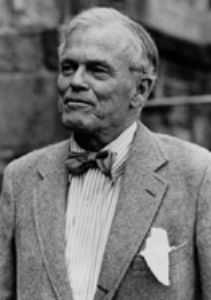
|
| Professor Digby Baltzell |
Digby Baltzell had something of the defiant rebel in him. He surely didn't imagine his employer, the University of Pennsylvania, was pleased to have him a document that Harvard is a better college than Penn. Nor were fellow members of the Philadelphia Club pleased to confront scholarship that his city's gentry was too devoted to money-making to accept the ardors of public leadership. Nor would his relatives in the Society of Friends enjoy accusations their religion impaired the pursuit of excellence in all fields of the city's endeavor. Later articles will here take up some unfair assaults, and defend Quaker simplicity and Peace Testimony. Some blame must, of course, be shared, some mitigating circumstances acknowledged. And let it be said in Baltzell's support that it truly is remarkable how many cultural features do get passed down for ten or more generations. Or even longer; look at the persistence of ancient Chinese, Indian, Esquimo, Viking, Roman, Christian and other cultural heritage. The Quakers got to Pennsylvania early, they are now vastly outnumbered. Many Quaker ideas continue to influence present inhabitants, some ideas probably hold us back. Substitute "Puritans of Boston" for "Quakers" in the foregoing sentence, and conclude by saying "some of those ideas probably give Bostonians an edge". Those two rather unexceptional declarations summarize a controversial book, although they do not completely capture its overall censorious flavoring.
To a certain extent, Digby is his own worst enemy. While alive, he was one of the world's most charming raconteurs, a walking encyclopedia of local lore. Like a good docent in a museum, he could walk into a room hung with portraits, and charm any audience for an hour; presumably, his sociology lectures at Penn held the same magnetism for his classes. In a book for popular readers, however, it is overdone to go on about the same point for six hundred pages. He needed a better editor, or perhaps he needed to permit a better editor to make him restrain his tendency to multiply illustrations beyond the point where the reader loses the thread of the argument. Not all readers will agree with his argument; they can only be legitimately defeated by focused argument. That's perhaps unrequired of college professors holding the power of grade-point averages over nineteen-year-olds, but it is expected of conversation with other adults. If an editor wants to sell books to a general bookstore audience, he should induce authors to overcome the take-it-or-leave-it habit.
As a general reaction to this book, Baltzell seems to think Quakers do not want to be rich and that consequently, latecomers into the region tend to share this feeling. My own view is that Quakers see they can have almost all of the value of being moderately rich -- by disdaining the trivial luxuries of the middle classes. They do not exactly renounce fame and power but are unwilling to gamble much or sacrifice much, in order to enjoy the comparatively small exhilaration of being very rich. They are now no longer surrounded by junior versions of themselves, but by bank-robbing Willie Suttons who readily attack Quakers for being where the money is, and appear to be pushovers at that. When Quakers then promptly demonstrate they are not pushovers at all, they are treated like outsiders in their own town. In many ways and at most times, the populist crowd gives up trying to understand Quakers and decides they must somehow always behave in ways that others would not. It's hard to achieve much deference in such an environment.
Many of Baltzell's important insights grew out of his position as a Philadelphia and academic insider; he personally knew many of the people he described. However, such an infiltrator runs the constant risk of being viewed as a tattle-tale, so a cover is required. Batzell's technique involved frequent use of quotations from others, not so much to prove a point as to rephrase it. This is another feature of the book which might have benefited from a hard-nosed editor. However this is how he wanted it, and in a post-publication revision, here is a condensation of how he summarizes his argument:
When studied with any degree of thoroughness, the economic problem will be found to run into the political problem, the political problem, in turn, run into the philosophical problem, and the philosophical problem itself to be almost indissolubly bound up at last with the religious problem.
--Irving Babbitt
In the South, ....left-wing Quakers came to the fore in the pine barrens of North Carolina-- to this day, North Carolinians speak of their state as "a valley of humilities between two mountains of conceit."
--E. Digby Baltzell
The world is only beginning to see that the wealth of a nation consists more than anything else in the number of superior men it harbors.
-- William James
I believe that ambitious men in democracies are less engrossed than any other with the interests and judgments of posterity; the present moment alone engages and absorbs them...and they are much more for success than for fame. What appears to me most to be dreaded, that in the midst of the small, incessant demands of private life, ambition should lose its vigor and its greatness.
-- Alexis de Tocqueville
Our rulers today consist of a random collection of successful men and their wives. ....They have been educated to achieve success, but few of them have been educated to exercise power. Nor do they count with any confidence upon retaining their power, nor of handing it on to their sons. They live therefore from day to day, they govern by ear. Their impromptu statements of policy may be obeyed, but nobody seriously regards them as having authority.
--Walter Lippmann
Equalitarians holding...extreme views have tended to believe that men of great leadership capacities, great energies or greatly superior aptitudes are more trouble than they are worth.
--John W. Gardiner
In the Jacksonian era in this country, equalitarianism reached such heights that trained personnel in the public service were considered unnecessary...Thus, in the West, even licensing of physicians was lax, because not to be lax was apt to be thought undemocratic.
--Merle Curti
In the late eighteenth century we produced out of a small population a truly extraordinary group of leaders-- Washington, Adams, Jefferson, Franklin, Madison, Monroe, and others. Why is it so difficult today, out of a vastly greater population, to produce men of that character?
--John W. Gardiner
It is nevertheless certain that the high quality of Virginia's political leadership in the years when the United States was being established was due in large measure to those very things which are now detested. Washington and Jefferson, Madison and Monroe, Mason, Marshall, and Peyton Randolph, were products of the system which sought out and raised to high office men of superior family and social status, of good education, or personal force, of experience in management: they were placed in power by a semi-aristocratic political system.
--Charles S. Syndor
Another clue to the relationship between hierarchy and leadership is suggested by Gardner's list of the Founding Fathers. All of these men were reared in Massachusetts or Virginia; none was reared in the colony of Pennsylvania, though Philadelphia was the largest city in the new nation and contained perhaps the wealthiest, most successful, gayest, and most brilliant elite in the land. Not only had Pennsylvanians little to do with taking the lead in our nation's founding, but the state has produced very few distinguished Americans throughout our history...I shall concentrate here on the commercial cities of Boston and Philadelphia, whose great differences in leadership and authority were far more likely to reflect differences in ideas and values.
--E. Digby Baltzell
Whatever else ...America came to be, it was also an experiment in constructive Protestantism.
--H. Richard Niehbur
All this is only to say that man is a product of his history, where nothing is entirely lost and little is entirely new.
--E. Digby Baltzell
For the wine of New England is ...more like the mother-wine in those great casks of port and sherry that one sees in the bodegas of Portugal and Spain, from which a certain amount is drawn off each year, and replaced by an equal volume of the new. Thus the change is gradual, and the mother wine of 1656 still gives bouquet and flavor to what is drawn in 1956.
--S.E. Morison
New Englanders, ambitious beyond reason to excell.
--Henry Adams
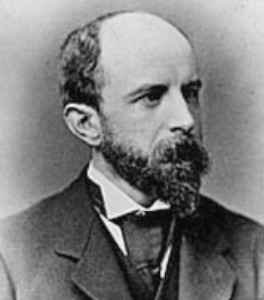
Henry Adams Pennsylvania became the ideal state, easy, tolerant and contented. If its soil bred little genius, it bred less treason. ... To politics, the Pennsylvanians did not take kindly. Perhaps their democracy was so deep an instinct that they knew not what do to with political power when they gained it; as though political power was aristocratic in its nature, and democratic power a contradiction in terms.
--Henry Adams
The reproach I address to the principles of equality is that it leads men to a kind of virtuous materialism, which would not corrupt, but would enervate the soul, and noiselessly unbend its springs of action.
--Alexis de Tocqueville
In our egalitarian age of mistrust, trustworthy men of great ability are increasingly refusing to run for public office or to serve in positions of authority and leadership in our society...In the rest of this book, I shall try to show how and why the Quaker city of Philadelphia, in contrast to Puritan Boston, has suffered from that virus of virtuous materialism for almost three centuries and how its best men, on the whole, have seldom sought public office or positions of societal authority and leadership outside business.
--E. Digby Baltzell
REFERENCES
| Puritan Boston and Quaker Philadelphia: E. Digby Baltzell. ISBN-13: 978-1560008309 | Amazon |
The Franklin Inn
 Founded by S. Weir Mitchell as a literary society, this little club hidden on Camac Street has been the center of Philadelphia's literary life. 
|
Camac Street is a little alley running parallel to 12th and 13th Streets, and in their day the little houses there have had some pretty colorful occupants. The three blocks between Walnut and Pine Streets became known as the street of clubs, although during Prohibition they had related activities, and before that housed other adventuresome occupations. In a sense, this section of Camac Street is in the heart of the theater district, with the Forrest and Walnut Theaters around the corner on Walnut Street, and several other theaters plus the Academy of Music nearby on Broad Street. On the corner of Camac and Locust was once the Princeton Club, now an elegant French Restaurant, and just across Locust Street from it was once the Celebrity Club. The Celebrity club was once owned by the famous dancer Lillian Reis, about whom much has been written in a circumspect tone, because she once successfully sued the Saturday Evening Post for a million dollars for defaming her good name.
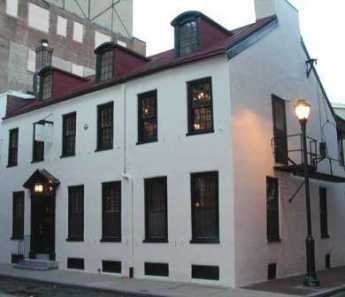
|
| The Franklin Inn |
Camac between Locust and Walnut is paved with wooden blocks instead of cobblestones because horses' hooves make less noise that way. The unpleasant fact of this usage is that horses tend to wet down the street, and in hot weather you know they have been there. Along this section of narrow street, where you can hardly notice it until you are right in front, is the Franklin Inn. The famous architect William Washburn has inspected the basement and bearing walls, and reports that the present Inn building is really a collection of several -- no more than six -- buildings. Inside, it looks like an 18th Century coffee house; most members would be pleased to hear the remark that it looks like Dr. Samuel Johnson's famous conversational club in London. The walls are covered with pictures of famous former members, a great many of the cartoon caricatures by other members. There are also hundreds or even thousands of books in glass bookcases. This is a literary society, over a century old, and its membership committee used to require a prospective member to offer one of his books for inspection, and now merely urges donations of books by the author-members. Since almost any Philadelphia writer of any stature was a member of this club, its library represents a collection of just about everything Philadelphia produced during the 20th Century. Ross & Perry, Publishers has brought out a book containing the entire catalog produced by David Holmes, bound in Ben Franklin's personal colors, which happen to be gold and maroon, just like the club tie.
The club was founded by S. Weir Mitchell, who lived and practiced Medicine nearby. Mitchell had a famous feud with Jefferson Medical College two blocks away, and that probably accounts for his writing a rule that books on medical topics were not acceptable offerings from a prospective member of the club. So there.
The club has daily lunch, with argument, at long tables, and weekly round table discussions with an invited speaker. Once a month there is an evening speaker at a club dinner, with the rule that the speaker must be a member of the club. Once a year, on Benjamin Franklin's birthday, the club holds an annual meeting and formal dinner. At that dinner, the custom has been for members to give toasts to three people, all doctors, including Dr. Franklin, Some sample toasts follow: The hundred years war, the thirty years war, the seven years war, and other European disagreements made it difficult to import wine to England, turning the wine import trade to Portugal. Port wine was, of course, prominent, but the best wine of all came from the Portuguese colony of Madeira. The island of Madeira is closer to Africa than to Portugal, so the triangular slave trade made it easy to import Madeira wine to the British colonies in America. The eastern seaboard of America had no grape culture of any note, so the beverage trade centered on rum, whiskey, beer, and Madeira. George Washington is widely reported to have had half a bottle of Madeira every day for lunch, for example. The other evening at the Franklin Inn Club, a traditional Philadelphia Madeira party filled the hall, and the membership was brought up to date on some of the traditions and finer points of the occasion. In the first place, the Franklin Inn was founded by S. Weir Mitchell. Mitchell, in his spare time as Father of Neurology, had written a short story called The Madeira Party which worked in a large number of details about what was what about Madeira, ending with ribald tipsiness. Nathan Steven, a well-known wine authority, instructed the group in the various types of grape and vintage, and other members who have summered in Madeira related current conditions. Because the volcanic island is a favorite place for visitors, particularly Englishmen, real estate is at such a premium that most vineyards have only one or two acres of grapes. The wineries whose names are on the bottles pick up the crop from these local growers and take it on from there. This seems as good as any other explanation for the current high prices of the wine. However, a century ago a disease wiped out the French and Portuguese vineyards, who were forced to beg back some exported grapevines from California to get back in business. So, one wonders about the scarcity claim. It is related that a number of cargoes of Madeira, particularly those of John Hancock of Boston were caught being smuggled to the colonies, and got returned. It was discovered that the taste of the wine was greatly improved by the tumult so that each vintner experimented with various methods of agitating and heating the wine to produce a particular brand. Madeira, like sherry, is a fortified wine, with various proportions of grain alcohol and brandy added in secret formulas. On one point there is general agreement, that if fortified wines are aged for long enough periods, eventually they all taste alike. There thus has emerged a tricky business of aging the wine long enough for the vintage of the wine to match the age or anniversary of the person being honored by the gift. Fifty years is the tricky goal; it's the most popular gift, but perilously close to the point where you can't tell if it is sherry or Madeira. There are four main varieties of Madeira (brand names are something else), getting progressively sweeter, darker colored and more expensive as they age. Malmsey, in a barrel of which Shakspere portrayed the royal princes being drowned, is claimed to be the very best. Some people regard it as too sweet, however. At proper Madeira party, each variety is served with a different course of terrapin or whatever. The President of the Franklin Inn read off the instructions for cooking the traditional first course of jellied boiled boar's head, and the guests agreed that modern tastes called for a substitute. After the reading of Mitchell's short story, the group added a new tradition of singing Flanders and Swann's ribald song, "Have Some Madeira, m'dear". Chuck Barber, the current President of the Green Tree Insurance Company, added an entirely new historical slant. The Insurance Company is well known for having the best dinner in town at its meetings since directors of insurance companies don't do much. At the dinner in 1799, the news was brought in that George Washington had just died. A member rose to propose what has become an annual toast in Madeira, "To President Washington!" In time, S. Weir Mitchell became a member of the board, and the famous short story was the outcome which firmly fixed the rules of the Philadelphia Madeira Party. Bill Madeira was called on to verify this history, but he protested that his family name was derived from the wine, not the other way around. It seems appropriate to add another historical note. Benjamin Franklin, after whom the club is named, suffered severely from gout. Although some sort of association with liquor had been mentioned as far back as Hippocrates, Franklin's powers of observation and his fame as a scientist placed him in a position to make it an irrefutable doctrine that gout was a medical penalty for drinking liquor. It was, of course, Madeira that old Ben was drinking, and it was the rule that Madeira was transported in lead-lined kegs. The Green Tree has some of the old kegs if you doubt it. Franklin's observation was acute, but what he was reporting was the effect of the lead poisoning, not of the wine. Few seem to have commented much on the connection between the death of the Saturday Evening Post and the subsequent decline of the book publishing business. The Curtis Publishing Company published books, of course, but that's only a small part of the matter. The general-interest magazines, the Post in particular, were places where authors built their reputations, often long before they had started writing their books. The Post would run eight or more long articles each week, and at least two serials. From the parochial point of view of the weekly magazine, a serial was a teaser, getting the reader interested and eagerly looking forward to the next installment and the next after that. Another way of looking at it, however, was as one very long piece, larger than a magazine article, but not as big as a book. Sometimes, an eight- or ten piece serial was longer than a small book. This was a wonderful incubator for new authors, and for advance publicity for established authors planning a forthcoming book on the same topic. The big magazines paid pretty well for articles, so writing for the Post was a good way for an author to support himself during the long famines between big books. The general interest magazine wasn't designed for the purpose of supporting the book publishing industry, but it definitely evolved that way. With the disappearance, of not just the Post but of all general interest weekly magazines, the dynamics are now a lot clearer. A new author of a book today has a terribly difficult time establishing a name and a following. The striking thing is that the advent of the home computer has caused an enormous outpouring of new, excellent, manuscripts which cannot find a publisher because it's so hard to get a first-book author established. In 2006, over two hundred thousand new books were published, and many obscure titles were actually quite good books. With shorter print runs as the market gets splintered, the cost per book has skyrocket Dutch and German companies, plus a vast number of small self-publishing enterprises. Much of this sad phenomenon has been blamed on TV, or the Internet, or the school systems. You just can't get people to read and write, these days it is said, but don't believe it. There are dozens of books languishing today that would have competed very effectively with Hemingway and Dreiser and Aldous Huxley. What's much harder is to get a readership assembled for a new author without spending a king's ransom on hype and publicity; if you are going to invest that much money, the business imperative is to invest it on trash, because trash really will sell if you hype it enough. High-class literature is supposed to sell itself. Every new author is shocked to discover that it takes a full year for his manuscript to wend its way into the bookstores if you can find a bookstore. It doesn't take that long to edit and design a book. It takes that much time to arrange the publicity, and pace its appearance for the book fairs, for the Christmas season, and the reviewers. You can give a free book to a reviewer who truly means to read it, but he may not read it for months. Most book distributors and sellers will not accept a book until they see what the reviewers say. It takes a long time, it costs a lot of money, and it often is unsuccessful. It's all pretty pathetic, compared with sending a chapter to the Saturday Evening Post, getting paid to put your author in front of ten million readers. There are two ways of looking at the love affair of Pinkerton, the dashing Philadelphia naval officer, and Madame Butterfly, the beautiful Japanese geisha. John Luther Long wrote about it one way, while Puccini somehow portrays it differently, even though Long collaborated on the Libretto of the opera. Puccini, of course, was himself a famous libertine, tending to follow the typical belief of such men that women somehow enjoy being victimized. Long in real life was a Philadelphia lawyer, trained to keep a straight face when people relate what messes they have got into. If you know the story, you can see Long in the person of Sharpless, the consul. Sharpless is definitely meant to be a Philadelphia name. Long was one of the early members of the Franklin Inn, and it is related he wrote much of his successful play at the tables of the club on Camac Street. David Belasco was the "play doctor" who knew how to make a good story fill theater seats. Even after Belasco's polishing, the play came through as a portrayal of the well-born gentleman who had been trained to regard foreign girls as just what you do when you are away from home. His real girlfriend, the beautiful Philadelphia aristocratic woman in a spotless white dress, was the sort you expected to marry. In just a few sentences of Long's play, this woman comes through as just about as distastefully aloof to foreign women as it is possible to be while remaining rigidly polite about it. Butterfly sees this at a glance, knows it for what it is, and knows it is her death. Her duty immediately is "To die honorably, when one can no longer live with honor". It is Puccini's genius to take this story of how two nasty Americans destroy an honorable Japanese girl and using that same story with the same words, make it into a romantic woman being destroyed by a hopeless, helpless love affair. The power of the music overwhelms the story and sweeps you along to the ending. Even if you feel like Long/Sharpless, dismayed and disheartened by watching some close acquaintances doing things you know they shouldn't. When Puccini's opera comes to Philadelphia every year or so, the Franklin Inn has a party for the cast, one of the great events of the Philadelphia intellectual scene. Somehow, the full intent of Luther Long's work never seems to come out. Meanwhile, Ginger Rogers, who was also engaged to Howard Hughes at one point, was making a great name for herself as the star of Christopher Morley's Kitty Foyle. Morley's Haverford experience taught him somewhat more respect for the Philadelphia Gentleman than Barry ever had, while his experience at the Curtis Publishing Company also made him appreciate the smart and plain-spoken Philadelphia girls from working-class districts. Highborn Philadelphia women are only sketchily imagined by Morley, except they somehow fail to appeal to his manly fictional cricket-player from the Main Line. As matters turned out, Katy lost to Kitty. Although Hepburn was surely the more talented actress, eventually winning five Academy Awards, Ginger Rogers walked away with the 1940 Oscar for her interpretation of a working-class Philadelphia lady. Either way it turned out, of course, Howard Hughes was bound to be a happy fellow. And yes, in 1956 Grace Kelly was the star of High Society, a renamed version of the Philadelphia Story for which, remember, Katherine Hepburn still controlled the rights. The film was a mediocre performance, just a little short of embarrassing. But however inexact all three of these portrayals may have been, there is little doubt that Philadelphia society moved a bit in their direction, involuntarily living up to an image created by three observers who seemed to their own observers to retain hostility traceable to their own undefined turmoils. Philip Barry stacks the deck somewhat, portraying the leading lady as movie audiences during the Depression were likely to fantasize, indulging a luxury only a rich girl would supposedly be careless about. She rejects the colorless rich suitor out of hand. But while her remaining choice between a charming magazine writer and a charming playboy is made to seem a closer call, it really never makes our Philadelphia Cleopatra hesitate very long. In the single editorial comment, the play's author permits himself, is tucked the snarl, "She's a lifelong spinster, no matter how many times married." That's New York talking. Bitter, bitter. REFERENCES In 1947, Howard Hughes was summoned to Washington to testify at a Senate hearing. Claude Pepper, Democrat of Florida, was in the chair, clearly angry about Hughes' conduct of munitions contracts, including flagrant non-performance. Three wooden flying boats had been commissioned for $18 million but not produced, people had been killed in crashes of test planes, and the newspapers were full of obscure allusions to unspecified wrong-doing in high places. Although the Hughes hearings were front page news for weeks, in those days it was only necessary to walk in and sit down if you wanted to watch them. Under the circumstances, it would have been understandable if Hughes had been reduced to a trembling mumbler, probably advised to "take" the Fifth Amendment with every question. Congressional chairmen, particularly Claude Pepper, quite regularly grandstand and bully the helpless witness at hearings like this, since it portrays them to the voters as heroic defenders of the public interest, and could even forward their chances of becoming a Presidential candidate. Hughes the scapegoat seemed to be in for a public flogging. The first step was to haul him before the committee and then keep him waiting for an hour or so, while the members attended to important public business, maybe even had to go for a roll-call vote or something. You could tell that things were not going according to the usual script when Hughes himself arrived quite late, accompanied by quite a large staff or retainers. When Pepper still delayed the hearing, Hughes called for a newspaper and elaborately read the comic pages. The Texas swashbuckler didn't look the part. His accent and tailoring reflected a New England boarding school, and while his mustache resembled that of his friend Errol Flynn, he had a voice like a lion and lightning retorts that would do credit to Bill Buckley. Reminding the Chairman that he had been deafened in the crash of a racing plane, he asked him to repeat the question. Sorry, please repeat it again. And again, and again. Pepper was beside himself. Flustered, Pepper tried to reverse the treatment. Senator, I have already answered that question. Well, answer it again. No, I stand on my previous testimony. I forget what you said. Have the stenographer read it to you. Her transcript is not complete. Very well, my own secretary will read it back to you. As if to demonstrate that he hadn't defrauded the government, Hughes, who always test-piloted his own planes, flew the H-4 about a mile in less than a minute during what was supposed to be a taxiing test on November 2, two months after his congressional testimony. In another strange and unexplained footnote, the Glomar Explorer was a ship built in Philadelphia and used in Project Jennifer in an attempt to salvage a sunken Russian nuclear submarine and discover any secret technology it might contain. This was long past the time when Hughes was supposed to be disgraced and banished from Government contracts. The Senate hearings obviously had no effect on his status, and indeed might even have been entirely staged to mislead the Russians and others. Like so many things in his life, this episode has no readily obvious explanation. Only in retrospect is it possible to see that Hughes was involved in lots of top-secret matters, and the bravado of his defiance -- not to say contempt of Congress -- might have had roots in some sure knowledge Pepper would not dare touch him. The CIA commissioned him to build the Glomar Explorer to find a sunken Russian submarine, using a phony story of manganese recovery. The supposed political victim of the much later Watergate break-in, Larry O'Brien, is said to have once been a Hughes employee; on the other hand, Hughes was very close to the Nixon Administration. There were inevitably many ties between his Las Vegas gambling empire and Cuban underworld figures, as well as Hollywood figures. Hughes was an owner of the Dallas movie theater where John Kennedy's murderer Lee Oswald tried to hide and was captured. It is not possible to judge Howard Hughes by the usual standards; this eccentric billionaire was capable of doing unimaginable things and it will be remarkable if spectacular news about him ends with his death. Boker, George Henry, (1824-1890), Section A, Lot 91. Poet and dramatist. Helped led its Civil War propaganda Activities. Bradford, Andrew Section W, Lot 231 Andrew Bradford (1688-1742) published Philadelphia's first newspaper. Brown, Charles Brockden, (January 17, 1771 - February 22, 1810), an American novelist, historian, and editor of the Early National period, is generally regarded by scholars as the most ambitious and accomplished US novelist before James Fenimore Cooper. Bullitt, John Christian,(1824-1902)Section P, Lot 52. Lawyer and author of the Philadelphia City Charter. Childs, George William.(1829-1894)Section K, Lot 337. Publisher of Victorian best sellers and one of Philadelphia great 19th century newspapers-the Public Ledger Conrad, Robert, (1810-1858). Section 14, Lot 266. A literary figure who served as first Mayor of the Consolidated City of Philadelphia. Cummings, Brig. Gen. Alexander (1810-1879) Section I, Lot 224 Founded the Evening Bulletin, oversaw procurement and raised troops in Civil War. Governor of the Colorado Territory. Nicknamed "Old Straw Hat." Curtis, Louisa Knapp. (1852-1910)River Section, Lot 31. Editor of the Ladies Home Journal. Duane, Mary Morris (Section L, Lot107-112) was a Poet. Elverson, James. (1828-1911). Section T. Lot 41. Developed the Inquireras a major newpaper. Fagan, Frances.(Fanny)(1834-1878) Section G, Lot 272, first daughter of John Francis Fagan by his first wife, Mary (Armstrong). Fagan committed suicide and was buried at Laurel Hill Cemetery, on 2 February 1878. Poet. Godey, Louis Antoine. (1804-1878) Section WXYZ Oval. Lot 3. Publisher of America's first great magazine for women-Godey's Lode's Book. Hale, Sarah Josepha. (1788-1879). Section X, Lot 61. Editor of Godey's Lady's Book, a crusader for women's medical education, and the person chiefly credited with establishing Thanksgiving as a national holiday. Hildeburn, Mary Jane,(1821-1882) Section G-190. Author of Presbyterian Sunday School stories. Hirst, Henry Beck.(1817-1874). Section Q, Lot 225. Poet Hooper, Lucy Hamilton. Section W, Lot 17 was an assistant editor ofLippincott's Magazine from the first edition until 1874. She also wrote for Appleton's Journal and the Evening Bulletin. She wrote several books of poetry and she was also a playwright. One of her plays, Helen's Inheritance, had its premiere at the Madison Square Theater in NYC. After moving to Paris in 1874, she became the "Paris correspondent" for various American newspapers. She was also a novelist, with one of her novels, Under The Tricolor, causing quite a stir. It was a thinly-veiled satire of the lives of certain expatriates who were living in Paris at the time. Kane, Elisha Kent. Section P, Lot 100. Elisha Kent Kane(1820-1857) became famous for his arctic explorations. Kane's publications include: "Experiments on Kristine with Remarks on its Applications to the Diagnosis of Pregnancy," "American Journal of Medical Sciences, n.s., 4 (1842), The U.S. Grinnell Expedition in Search of Sir John Franklin, A Personal Narrative, New York: Harper and Brothers, 1854, and Arctic Explorations in Years 1853, '54, '55, Philadelphia: Childs and Peterson, 1856. Lea, Henry Charles.(1825-1909) Section S, Lot 49. Pro-Northern propagandist during the Civil War, Civic Reformer, and author of a classic history of the Spanish Inquisition. Sculpture by Alexander Stirling Calder. Leslie, Eliza. (1787-1858) Section6, Lot 45. Author of MissLeslie's Directions for Cookery (1851)and other cookbooks. Lippincott, Joshua B. (1831-1886)Section 9, Lot 118. Founder of the distinguished Philadelphia publishing company. Marion, John Francis. (1922-1991) Section S, Lot 118. Philadelphia historian, author, and gentlemen. Mc Michael, Morton.(1807-1879) Section H, Lot 45. Publisher of the North American, mayor of Philadelphia, and president of the Fairmount Park Commission. Neal, Joseph Clay, (1807-1847) Section P, Lot 71. Editor and humorist, best known for Charcoal Sketches in a Metropolis. Read, Thomas Buchanan. (1822-1872) Section K, Lot 206. Both poet and sculptor, Read is best remembered for his Civil War poem "Sheridan's Ride". Singerly, William. (1832-1898) Section K, Lot 235. Made fortunes in street railways, real estate, knitting mills. Published the Philadelphia Record. Townsend, George Alfred.(1841-1914) Section 9, Lot 98. One of the most important American Journalists during the Civil War and Reconstruction. Wireman, Katharine Richardson. Section 9, Lot 160. was an illustrator who studied with Howard Pyle. She worked for the magazines that Curtis Publishing produced. Wister, Owen. (1860-1938) Section J, Lot 206. Author of The Virginian. American writer whose stories helped to establish the cowboy as an archetypical, individualist hero. Wister and his predecessor James Fenimore Cooper (1789-1851) created the basic Western myths and themes, which were later popularized by such writers as Zane Grey and Max Brand. The Sound on the Page by Ben Yagoda (HarperCollins, $23.95). Over the course of his career, acclaimed author, teacher, and critic Ben Yagoda has uncovered one
certain truth about writing: "Style matters." Indeed, it is frequently the case that our favorite
writers entertain, move, and inspire us less by what they say than by how they say it. Most books, including Strunk and White's classic The Elements of Style, take a narrow view of style,
suggesting that the only proper one is of plainness, simplicity, and transparency. But tell that to
David Foster Wallace, Dave Eggers, Don DeLillo, and other stylistic risk takers! While not a "how-to" manual, The Sound on the Page offers practical and incisive help for writers on identifying and developing a distinctive style and voice. Drawing on interviews with more than
forty authors -- Tobias Wolff, Elmore Leonard, Michael Chabon, Cristina Garc'a, Dave Barry,
Camille Paglia, Junot D'az, Margaret Drabble, and Bill Bryson among them Yagoda discusses: Filled with insights from outstanding writers and close readings of their works, The Sound on
the Page is an essential book for all aspiring and experienced writers, as well as for readers who
are interested in learning how their favorite writers approach the craft. Freedom Just Around the Corner: A New American History, 1528-1828 by Walter A. McDougall
(HarperCollins, $34.95). A powerful reinterpretation of the founding of America, by a Pulitzer Prize-winning historian
"The creation of the United States of America is the central event of the past four hundred years,"
declares Walter McDougall in his preface to Freedom Just Around the Corner. With this statement begins
McDougall's most ambitious, original, and uncompromising of histories. McDougall marshals the latest
scholarship and writes in a style redolent of passion, pathos, and humor in pursuit of truths often
obscured in books burdened with political slants. From the origins of English expansion under Henry VIII to the founding of the United States to the
rollicking election of President Andrew Jackson, McDougall rescues from myth or oblivion the brave,
brilliant, and flawed people who made America great: women and men, native-born and immigrant; German,
Latin, African, and British; as well as farmers, engineers, planters, merchants; Protestants, Freemasons,
Catholics, and Jews; and -- last but not least -- the American scofflaws, speculators, rogues,
and demagogues. With an insightful approach to the nearly 250 years spanning America's beginnings, McDougall offers his readers an understanding of the uniqueness of the "American character" and how it has shaped the wide-ranging course of historical events. McDougall explains that Americans have always been in a
unique position of enjoying "more opportunity to pursue their ambitions...than any other people in history."
Throughout Freedom Just Around the Corner the character of the American people shines, a character built out of freedom to indulge in the whole panoply of human behavior. The genius behind the success of the
The United States is founded on the complex, irrepressible American spirit. A grand narrative rich with new details and insights about colonial and early national history,
Freedom Just Around the Corner is the first installment of a trilogy that will eventually bring the
story of America up to the present day -- a story as epic, bemusing, and brooding as Bob Dylan's "Jokerman,"
the ballad that inspires its titles. All I Did Was Ask by Terry Gross (Hyperion, $24.95). A fascinating collection of revealing and entertaining interviews by the award-winning host of National
Public Radio's premier interview program Fresh Air. Over the last twenty years, Terry Gross has interviewed many of our most celebrated writers, actors,
musicians, comics, and visual artists. Her show, Fresh Air with Terry Gross, a weekday magazine of contemporary arts and issues produced by WHYY in Philadelphia, is one of National Public Radio's most popular programs. More than four million people tune in to the show, which is broadcast on over
400 NPR stations across the country. Gross is known for her thoughtful, probing interviewing style. In her trusted company, even the most reticent guest relaxes and opens up. But Gross doesn't shy away from controversy, and her questions can be tough -- too tough, apparently, for Bill O'Reilly, who abruptly terminated his conversation with her. Her interview with Gene Simmons of Kiss, which is included in the book, prompted Entertainment
Weekly to name Simmons its male "Crackpot of the Year." For All I Did Was Ask, Gross has selected more than three dozen of her best interviews -- ones of lasting relevance that are as lively on the page as they were on the air. Each is preceded by a personal
introduction in which she reveals why a particular guest was on the show and the thinking behind some
of her questions. And in an introductory chapter, the normally self-effacing Gross does something you're
unlikely ever to hear her do on Fresh Air -- she discusses her approach to interviewing, revealing a thing
or two about herself in the bargain. The collection focuses on luminaries from the art and entertainment world, including actors,
comedians, writers, visual artists, and musicians, such as: Becoming Old Stock: The Paradox of German-American Identity By Russell A. Kazal (Princeton, $35). More Americans trace their ancestry to Germany than to any other country. Arguably, German Americans form America's largest ethnic group. Yet they have a remarkably low profile today, reflecting a dramatic,
twentieth-century retreat from German-American identity. In this age of multiculturalism, why have German
Americans have gone into ethnic eclipse--and where have they ended up? Becoming Old Stock represents the first in-depth exploration of that question. The book describes how German Philadelphians reinvented themselves
in the early twentieth century, especially after World War I brought a nationwide anti-German backlash. Using quantitative methods, oral history, and cultural analysis of written sources, the book explores
how, by the 1920s, many middle-class and Lutheran residents had redefined themselves in "old-stock"
terms--as "American" in opposition to southeastern European "new immigrants." It also examines
working-class and Catholic Germans, who came to share a common identity with other European immigrants,
but not with newly arrived black Southerners. Becoming Old Stock sheds light on the way German Americans used to race, American nationalism, and mass culture to fashion new identities in place of ethnic ones. It is also an important contribution to the growing literature on racial identity among European Americans. In tracing the fate of one of America's
largest ethnic groups, Becoming Old Stock challenges historians to rethink the phenomenon of ethnic
assimilation and to explore its complex relationship to American pluralism.
Human-Built World by Thomas P. Hughes (University of Chicago, $22.50). To most people, technology has been reduced to computers, consumer goods, and military weapons;
we speak of "technological progress" in terms of RAM and CD-ROMs and the flatness of our television
screens. In Human-Built World, thankfully, Thomas Hughes, a professor emeritus at Penn, restores to
technology the conceptual richness and depth it deserves by chronicling the ideas about technology
expressed by influential Western thinkers who not only understood its multifaceted character but who
also explored its creative potential. Hughes draws on an enormous range of literature, art, and architecture to explore what technology has brought to society and culture and to explain how we might begin to develop an "ecotechnology" that works with, not against, ecological systems. From the "Creator" model of development of the sixteenth century to the "big science" of the 1940s and 1950s to the architecture of Frank Gehry, Hughes nimbly
charts the myriad ways that technology has been woven into the social and cultural fabric of different
eras and the promises and problems it has offered. Thomas Jefferson, for instance, optimistically hoped
that technology could be combined with nature to create an Edenic environment; Lewis Mumford, two
centuries later, warned of the increasing mechanization of American life. Such divergent views, Hughes shows, have existed side by side, demonstrating the fundamental
the idea that "in its variety, technology is full of contradictions, laden with human folly, saved
by occasional benign deeds, and rich with unintended consequences." In Human-Built World, he offers
the highly engaging history of these contradictions, follies, and consequences, a history that resurrects
technology, rightfully, as more than gadgetry; it is in fact no less than an embodiment of human values. Three Mile Island by J. Samuel Walker (California, $24.95) Twenty-five years ago, Hollywood released The China Syndrome, featuring Jane Fonda and
Michael Douglas as a TVnews crew who witness what appears to be a serious accident at a nuclear power plant. In a spectacular coincidence, on March 28, 1979, less than two weeks after the movie came out, the worst accident in the history of commercial nuclear power in the United States occurred at Three Mile Island. For five days, the citizens of central Pennsylvania and the entire world, amid growing alarm, followed the efforts of authorities to prevent the crippled plant from spewing dangerous quantities of radiation into the environment. This book is the first comprehensive account of the causes,
context, and consequences of the Three Mile Island crisis. In gripping prose, J. Samuel Walker, the historian of the U.S. Nuclear Regulatory Commission, captures the high human drama surrounding the accident, sets it in the context of the heated debate over nuclear power in the seventies, and analyzes the social, technical, and political issues it raised. His superb account of those
frightening and confusing days will clear up misconceptions held to this day about Three Mile Island. The heart of Walker's suspenseful narrative is a moment-by-moment account of the accident itself,
in which he brings to life the players who dealt with the emergency: the Nuclear Regulatory Commission,
the state of Pennsylvania, the White House, and a cast of scientists and reporters. He also looks at the
the aftermath of the accident on the surrounding area, including studies of its long-term health effects
on the population, providing a fascinating window onto the politics of nuclear power and an authoritative
the account of a critical event in recent American history. Runaway America: Benjamin Franklin, Slavery and the American Revolution by David Waldstreicher (Hill & Wang, $25). Scientist, abolitionist, revolutionary: that is the Benjamin Franklin we know and celebrate. To this description, the talented young historian David Waldstreicher shows we must add runaway, slave master, and empire builder. But Runaway America does much more than revise our image of a beloved founding father. Finding slavery at the center of Franklin's life, Waldstreicher
proves it was likewise central to the Revolution, America's founding, and the very notion of freedom we
associated with both. Franklin was the sole Founding Father who was once owned by someone else and was among the few to derive his fortune from slavery. As an indentured servant, Franklin fled his master before his term was complete; as a struggling printer, he built a financial empire selling newspapers that not only advertised the goods of a slave economy (not to mention slaves) but also ran the notices that led to the recapture of runaway servants. Perhaps Waldstreicher's greatest achievement is in showing that this was not an ironic outcome but a calculated one. America's freedom, no less than Franklin's, demanded
that others forgo liberty. Through the life of Franklin, Runaway America provides an original explanation to the paradox of
American slavery and freedom.
How to Create Your Own African American Library by Dorothy L. Ferebee (Ballantine, $13.95). Here is the first book ever written to help African Americans build a home library that celebrates the diversity of their culture and heritage. How to Create Your Own African American Library truly
does unlock the door to knowledge and power. With warm and expert commentary, experienced book reviewer and avid reader Dorothy Ferebee reviews and recommends books that will help you to build your own home library. Inside you'll discover: Plus books on Travel, Music, Poetry, and Special Collections! Here's all you need to know to create a mini-university in your own home, one that is open
every day to support the highest aspirations of yourself, your children, and their children. Boardwalk of Dreams by Bryant Simon (Oxford, $35). No one can deny that casinos have brought money and crowds back to Atlantic City. Since the first casino
opened in 1978, gambling corporations have invested six billion dollars in the old resort town
and, during the 1990s, more tourists visited Atlantic City than any other place in the United States
including Las Vegas and Disneyworld. Perhaps the finest book ever written about Atlantic City,
The complete review of this book by a Temple University scholar is available on Amazon.com at the
link above. Wilt by Robert Cherry (Triumph, $24.95). Authoritative, informative, and entertaining, Wilt is the first standard biography about this
American legend the unique and unforgettable Wilt Chamberlain. One of the 20th century's greatest and most controversial athletes, Wilt also had an intensely private side that the author uncovers through years of interviews with the people closest to Wilt up until the time of his death in 1999.
This groundbreaking work successfully captures Wilt Chamberlain the man, while also closely examining
the better-known myths that surrounded him throughout his life. REFERENCES REFERENCES The American myth of the cowboy has much more Philadelphia flavor than one would suppose, considering the far-western location of the cows, the New York origins of Teddy Roosevelt, and the implication of southern aristocracy running through the dispossessed gentlemen riding the purple sage. The myth of the noble cowboy is behind much of what elected Ronald Reagan, the Californian. Nevertheless, the Homer who started this epic Iliad was Owen Wister of Seventh and Spruce, Philadelphia.His book The Virginian might be summarized in a single quotation, "When you say that to me, smile." Behind that, of course, was Wister the lion of the Philadelphia Club rebuking his peers. The real theme was "I searched the drawing rooms of Philadelphia and Boston for the gentleman. And I found him on the frontier." Part of this complex theme is the underlying outdoors fraternity linking cowboys and Indians, tracing back to James Fenimore Cooper of Camden, NJ ennobling the noble savage in the Last of the Mohicans. Fair treatment for the natives has long been a strong Quaker theme, tracing back to William Penn's deep wisdom about colonization, and also personified in Corn planter the thoughtful Chief of the Iroquois, or Joseph Brant the scholarly Indian leader who translated the Bible, charmed the English monarchy, and then returned home to massacre the town of Lackawaxen. There's a theme here of shooting the circling Indians off their ponies, take no prisoners, mixed with the tragic white woman who falls in love with the equally tragic Indian brave, all doomed from the start. There's the sheriff with a shady past, going forth to shoot it out with outlaws while his Quaker wife watches out the window, because he is true to the Code of the West. Grace Kelly was surely no Quaker, but the Philadelphia hint is unmistakable. It may take a century or more, but some American Homer is surely going to write the definitive epic based on this story. Meanwhile, Zane Grey tried his best. His version has a lot of Philadelphia in it, and not only because he went to the University of Pennsylvania on a baseball scholarship. He graduated from Penn as a dentist, practiced in New York for six years, and hated every minute of it. Writing cowboy stories in his spare time, he gladly quit dentistry after his first publishing success, and moved over to Lackawaxen, PA to write in the woods. Lackawaxen is a great fishing spot, and was once a flourishing resort community at the confluence of the railroad and canal systems, now long since decayed and gone. He lived there for fifteen years, and asked to be buried there. His home is now a museum. Pearl Grey became Zane Grey by way of P. Zane Grey, DDS. He had been born in Zanesville, Ohio, the son of a Quaker mother who belonged to the founding Zane family, and a preacher-farmer father who had insisted on the dentistry idea. All his life, Zane Grey was a vigorous sportsman, most unlikely to warm to an effeminate name like Pearl. Or gentle Quaker ways, either; but like his cowboy heroes he was obedient to his code. Most of his life he managed to go fishing more than two hundred times a year, and produced two thousand words of writing almost every week. He wrote a hundred thousand words a year, and kept it up for thirty years. He published sixty books in his lifetime, and thirty more of his books have appeared since his death. His material was the basis for forty movies, and many short stories. Six of his books are about fishing, but mostly he wrote sophisticated variations on the theme of the wild West, the cowboy true to his code, and the noble savage. He was the first American author to become a millionaire from his writings. It seems sort of a pity that he was overtaken by the pressures of commercial success, and consumed by his extraordinary drive and diligence to the point where very little time was left for the Great American Epic of the West. He lived in California for many years, but it seems unlikely there were enough hours in his day to shake loose from Quaker origins. The same is true of Ronald Reagan and his Iowa origins, but somehow that does not capsulize what the American cowboy represents. Somehow there is something in common about the former Confederate cavalrymen who were the early cowboys, the Quakers befriending the Indians, and the Iowa boy who was to negotiate the end of the Cold War with the Evil Empire. It is somehow a matter of remaining true to your roots while dealing fairly with strangers. It lies in Reagan's motto as much as the Virginian's barroom warning. Trust, but verify. A TOAST TO E. DIGBY BALTZELL (1915-1996) The Franklin Inn Club, Philadelphia Annual Dinner, 15 January 2010 I am grateful that our President, Deborah Goldstein, and the Board have given me this opportunity to make precedent -- tonight to strengthen the tradition of the Franklin Inn Club by raising a new toast, following our 18th century icon, Benjamin Franklin, and the 19th century men who founded the Inn, with a 20th century member. We are, after all well into the 21st century. It is my original privilege to honor a member and author who contributed strongly to American social thinking: E. Digby Baltzell. Digby and WASPS
Let me right away make two statements about Digby and WASPS. His name is associated with that acronym because it appeared in his book of 1964, THE PROTESTANT ESTABLISHMENT; ARISTOCRACY AND CASTE IN AMERICA. But contrary to a popular misconception, Digby did not invent the term WASP. I know, because a Jewish girlfriend from New York City used that term on me critically ("That's what we call people like you") in 1952. And there is good evidence that the term was in use as a put-down, like other American ethnoreligious slurs, two decades before Digby gave his term for White Anglo-Saxon Protestants scholarly standing in his book. Secondly: however dear his idea was to him, Baltzell gave up on WASP aristocracy before his death. His subtitle had contained his aim: "Aristocracy and Caste in America." He was inspired by Tocqueville's attempt to save the French aristocracy from its own destruction by writing "Democracy in America" during the presidency of Andrew Jackson. Baltzell was concerned about his own aristocratic class. These were prep school and Ivy League educated people with family lineage, trust funds, and above all, what might be called Rooseveltian motivation.
Either TR, Republican, or FDR, Democrat, party did not matter. Both Roosevelts had the aristocratic drive to excel: not only to lead but to assimilate other talents into leadership. That was the key to the matter: for a responsible aristocracy perpetuates itself by absorbing into ruling power new immigrant energy and multi-class talents, such as, in the 1930s, Fiorello LaGuardia, mayor of New York City, and Sidney Weinberg of Goldman Sachs. An aristocracy is irresponsible, however, when it merely replicates its own ethnic and religious features. By protecting itself with clubbishness it ceases to be an aristocracy and rigidifies into a caste. Baltzell, 1964, feared that WASPS in the USA would let that happen, and wrote in the strong hope that they would not. But it was already happening. Looking back, we can see that the game was almost over. Digby and Me
Who was Digby Baltzell? He was born in Rittenhouse Square and grew up in Chestnut Hill to what he called an "impecuniously genteel" family. They sent him off to St. Paul's School in New Hampshire, an exclusive Episcopalian* boarding school formed in an English tradition. In his senior year, his alcoholic father was fired from his insurance company, and soon after died of a heart attack. For college, Digby could not afford Harvard, Yale, or Princeton, where all his classmates went but settled for the University of Pennsylvania. There he got himself through on scholarship, with various jobs such as ticket-taker, usher, and parking lot attendant at Franklin Field. He went on to get a Ph.D. at Columbia and came back to Penn, where he taught for the rest of his employed career. I never met Digby personally because he died in 1996, the year that I joined the Inn. Yet I identify with the man I just described in some distinct ways. My own alcoholic father, a mellow, dear, and vulnerable man, lost his job as a stockbroker while I was in college. There, at Williams, I was a member of the same hard-drinking fraternity, St. Anthony Hall, as Baltzell had been at Penn. I'm not Episcopalian, but being a Scotch-Irish Presbyterian makes me categorically WASP. I feel like Digby did, that I have been a marginal member of the elite. I became an academic to try to figure out what the hell was going on around me. I have, like him, "an insider's heart and an outsider's mind." That has qualified me not to make a fortune, but to write books. Digby and Us
We all live in a time of social phenomena Digby never reckoned with -- of Bill Clinton as a white trash national leader; of John Kerry, a Catholic agnostic from St. Paul's School who lost the election of 2004 to G.W. Bush, a retrograde pseudo-Texan who had renounced his father's waspismo. Personalities that Baltzell might barely have imagined: Oprah Winfrey, a multicultural pop icon who is incidentally black; and the Afro-Saxon lawyer-intellectual whom we have chosen President of the United States, Barack Obama. Baltzell finally gave up the attempt to invigorate his idea of a responsible ethnoreligious elite. He realized, and said, "what the Jews have done since World War II is the great untold story." And when he died he was preparing to undertake a book on the end of the Protestant establishment. He recognized that it had been replaced by a meritocracy based on professional performance, which, I think, is far more congruent to American social dynamics.
I conclude that Baltzell's last and never completed project was an admission that his three books on the WASP establishment were a failed effort to firm up a transient power structure. I believe that Baltzell had been trying to implant in America a British notion of ruling class flavored with Tocquevillean nostalgia for a lost French aristocracy. Our nation has wholly different components from those, and he was bound to fail. Even as he struggled to make the point, he acknowledged the multi-cultural society around him, while expressing a vivid fear that multi-culturalism enshrined meant moral relativism, which would, in turn, mean an unworkable political system. On that last, he may yet prove correct. And he was surely astute in recognizing the importance in America of a professional meritocracy. If any of us, nonetheless, still yearns for an aristocracy of some kind, I would recommend Jefferson's idea of "a natural aristocracy based on talent and virtue." Digby, although a connoisseur of clubs noted in the Social Register, never joined one, although often invited to do so. He criticized, among others, the Duquesne Club in Pittsburgh, the Links Club in New York, and the Philadelphia Club here for their obtuse and pointless exclusiveness.** But he chose to be a member of The Franklin Inn Club, and in his later years often came from home on Delancey Street to lunch among members. Our cultural, artistic, and literary atmosphere, we may dare feel, was comfortable for him. What he found here was perhaps an aristocracy without power, but a natural one in its components of talent and virtue.
Sisters and brothers: let us toast Digby Baltzell -- an exemplar of our values, and an inspiration to us in the Twenty-First Century. Theodore Friend *To the rumor that Baltzell became a Roman Catholic before he died, a close living relative says no: he very much respected the Catholic Church, was interested in healing the breach with Episcopalians and may have attended some Catholic services. But nothing more. **A Jewish friend, responding to my inquiries, tells me that he was admitted to The Union League in 1967, and about twenty years later became chair of the Admissions Committee. What percentage of members now are Jewish? He estimates five percent. Sources: Baltzell, THE PROTESTANT ESTABLISHMENT: ARISTOCRACY AND CASTE IN AMERICA , (1964) PURITAN BOSTON AND QUAKER PHILADELPHIA, (1979) THE PROTESTANT ESTABLISHMENT REVISITED, (1991) Brief conversations with members of the Franklin Inn: Daniel Hoffman, Nathan Sivin, and Arthur Solmssen. Lynmar Brock is a Quaker, so what he does is surprising. He lives on a farm, but is Chairman of the Board of a food distribution corporation. He's also chairman of several other boards. He's written several books, and among them, a novel Must Thee Fight? relates the tribulation of one of his pacifist ancestors who nevertheless became a soldier at the Battle of Brandywine. The theme of this emotional conflict parallels the author's own struggle over being a conscientious objector who ultimately volunteered for the Navy because he felt he could not stand by while others fought his battles for him. The face of the soldier with a musket on the book jacket is his own. When American forces recently entered Afghanistan, a great many people were forced to become refugees. Lynmar Brock was on the board of Rotary International, where a decision was made to provide relief for the refugees, and Mr. Brock flew over to lead the effort on the ground. Rotary raised $2 million almost immediately, and the task was to translate the money into something the refugees really needed. Since "shrinkage" is a common fate for refugee shipments, Rotary bought locally. They were able to distribute 83,000 pairs of shoes, 53,000 blankets and similar quantities of a number of other basic needs. Ultimately, the three-year effort raised $115 million and distributed items in the millions. It was important to give the goods to the local tribal chief, who then redistributed to the members of the tribe. To give it directly would undermine the authority of the chief, very likely provoking him to interfere with it. Accordingly, it is essential for relief workers to make friends with the chieftains, and it is essential to avoid the appearance of being a sap. All of the clothing was stamped with a big indelible yellow Rotary Seal; if it turned up in the black market, it would still be obvious what its source had been. At the same time, it was essential for donors not to appear to be soldiers. One of the missions of the group was to show the Afghans that Americans were real people who cared, and not all were soldiers. That they were successful in this way was brought out by one tribal chief coming forward and saying, "Teach us English. It's the language of the world." Some influential Rotarians are active in American ophthalmological circles, and arranged to have American eye surgeons extract a great many cataracts from Afghans otherwise destined to a life of blindness. Since the Taliban routinely poisoned the wells, it was vital that farmers like Lynmar Brock were able to show how to repair or replace the local water supply. It might have been better to replace opium farming with tomatoes, but a compromise was made to replace opium with marijuana. That's an improvement, of sorts. The danger inherent in this work must not be shrugged off. All vehicles of foreigners were preceded and followed by at least six local soldiers. As the cavalcade moved from one tribal area to another, the soldiers were changed for soldiers of the new tribal area; their loyalty just had to be trusted. And, indeed, the co-chairman of the committee was mysteriously murdered one day. The Rotarians return home full of praise for the U.N. field workers, mostly European, who are actually engaged in foreign relief work. The headquarters staff back home at the U.N. are described with only a shrug that speaks volumes, but it is useful for us all to keep the distinctions in mind. Lynmar says it's great to be home. In his busy life there's work to be done on the farm, and in his corporation, and writing another novel. And there is supervision also needed for the Rotary efforts in the Ivory Coast. It's not completely certain, but sometimes he actually gets some sleep. At USAToday, techniques are astounding. After getting an 800-word piece, an editor by phone will suggest cuts to 300 words; the piece is always improved. Last-minute speed, trying to watch television, is unbelievable. On one occasion, after a medical meeting in Kansas City, watching a baseball game go into extra innings I fell asleep with the game undecided. The next morning a newspaper was pushed under my door. It was USAToday, not only carrying the final score but a full story, under a color photo of the winning play. Just consider the precision Chicago reporting, Washington DC editing, Kansas City printing and local delivery that took place in seven hours. By contrast in book publishing, a full year often intervenes between manuscript submission and actual bookstore sales. So on a certain Monday night, the editor called. The Senate Majority Leader, George Mitchell, finally was to unveil the Clinton Health Proposal tomorrow morning. Would I please submit an editorial to run in the morning paper; he would supply the title. It was to be called, What Should Congress Do Now? and the deadline was 7 PM tonight. My watch read 5:30 PM. Well, what fun. After a few minutes of stumbling around, I resolved to build the editorial around the theme, Don't Make Things Worse. It then seemed natural to allude to similar proposals gone famously wrong, define some predictable traps, and end up with Hippocrates. Over and over it is thundered
at medical students: Primum non nocere. First do no harm. It all came together in my head, and I sat at the typewriter to bang it out. But when I came to that last sentence, pleading at least do no harm, I was hit by terrible doubt. That phrase comes to us in Latin, and Hippocrates was a Greek, living at least five hundred years before the Roman Empire. Famous though the saying is, it wasn't (then) in Bartlett's Quotations, or Roget's Thesaurus, or anything else I could lay my hands on in what was, after all, a medical office. It was 6:50 PM. I called a learned friend from his dinner-table, and he agreed it was a strange business, looked at a couple of books, couldn't help, sorry. So, I drew a deep breath, said the Hell with it, typed in, "As Hippocrates said, At Least Do No Harm," and shoved it into the fax machine. The next morning it appeared, next to two million copies of my photo; so at least the editor seemed to like it. Some friends soon called to say that Senators Dole and Moynihan had adopted the line on the noon and six o'clock news, each attributing it to Hippocrates. No matter what happened to the Clinton Health Plan, it looked to me as though I would be forever guilty of supplying the world with a highly quotable misquotation. Since then, with more time to do a proper search, I'm unfortunately still uncertain. William Safire at the New York Times, was intrigued but could only refer me to a nice lady at the Library of Congress who was a crony. She tried to help but was stumped. Some Hippocrates scholars at the Library of the Philadelphia College of Physicians were able to find a reference in The Epidemics which seems to say what we are looking for, and that reference has tardily crept into Bartlett's latest edition. Some people think Galen really wrote it, which might account for the Latin; but even that is unsatisfying to scholars. Somebody or other took that phrase, whether written by Hippocrates or not and pounded it over and over until it became a medical student incantation. Even if Hippocrates actually did express that sentiment in passing, it doesn't come through as a really important statement, and there isn't much evidence that his students were repeating it over and over as the words of the master. My present suspicion is that vague rumors about Samuel Hahnemann, the father of Homeopathy having a hand in promoting the slogan during the Nineteenth century, may have some underlying substance. Homeopathy was a belief system which emphasized the prescribing of infinitely minute doses of medicines. It had a flurry in the 19th Century when conventional Medicine was reeling from excesses of bleeding and purging, which surely did a lot of harm to victims of, say, Yellow Fever. The acrimony even spilled over into the emotionalism of the abortion debate, because laws prohibiting abortion had been sponsored by the allopathic American Medical Association. The verbal warfare between doctors of Homeopathy and "Allopathy" was bitter beyond describing. Although conventional medical care finally got its feet on the ground, and homeopathy is now pretty much a historical relic, the homeopaths did have that big strong point. Doing nothing is clearly better than doing something harmful. Nobody takes Latin, much, anymore. So the modern medical way of saying the same thing has come to be, "The hardest thing to do, is to do nothing". This way of stating the same idea is widely believed to have been offered by William Osler, but after all the controversy about Primam non-nocere , I am now reluctant to be too sure about anything in this area. Waldo E. Nelson was a much revered professor of Pediatrics at Temple University School of Medicine for several decades. He was the original source of fame for St. Christopher's Hospital for Children, a powerful and revered teacher, and has recently been mentioned as the "Father of Pediatrics." He died in 1997 at the age of 98. Everyone admitted he was a demanding task-master, to the point of eccentricity. That's a quality almost essential in any editor of a multi-author textbook because authors regularly procrastinate in submitting their contributions, while publishers have rigid deadlines and no patience at all with editors who ask to extend them. The central element in Nelson's fame was his 1600-page textbook of Pediatrics, with more authors than it is reasonable to count in the decades it was published and re-published, eventually establishing itself as the standard work in the field. Nelson applied discipline to his resident physicians, too. One former resident recently recalled his forbidding a husband and wife resident pair to eat lunch together in the hospital cafeteria. Not in my hospital, you won't. What his family life was like is not reported, but it can easily be imagined that he had rebellious children. One day he instructed his daughter to prepare a complete index of the textbook for the next edition. Apparently there was some resistance, eventually quashed. And to emphasize how unlikely it was that anyone would read an index very carefully, the book went through editing and proof-reading, and was in the bookstores for several months before anyone noticed the entry tucked away under "Birds". BIRDS, For the. page 1-1650. After two decades of seemingly endless dominance of Philadelphia headlines by the Mafia, the underworld has been absent from the news in the first decade of the 21st century. That's very welcome to everybody including the Mafia itself, and there are three main popular explanations. First, after 27 informal mob executions and four dozen convictions with lengthy prison terms, perhaps the mob has been eradicated. Or, possibly the immigrant population has been assimilated, now looking to quieter occupations for a source of income. And finally, maybe the mob has just decided to lie low while tax-hungry politicians enact enabling legislation for legal gambling casinos for the gullible public since the main argument against casinos is they attract crime. The histories of Atlantic City and Las Vegas certainly suggest organized crime has not yet abandoned casinos. George Anastasia's book Blood and Honor relates twenty years following the assassination of Angelo Bruno in 1980, averaging a murder or a prison sentence every three pages and leaving the reader with the impression of constant warfare in South Philadelphia. The book is pretty hair-raising, but after all, there is not much to talk about in a crime family except crime. To run through a brief overview of 27 assassinations and 36 major convictions is to leave a violent image of South Philadelphia. However, to say there were two to four assassinations per year plus three or four criminal trials softens that impact. The violence is appalling because it went on for so long. To note that Philadelphia like all major American cities its size, averages about three hundred murders a year puts mob violence in perspective. To be serious about eliminating homicide, you ought first eliminate "domestic violence". After that, you should go after street gangs and their focus on distributing recreational drugs. Whether it was a struggle for control of Atlantic City casinos, a policy dispute over whether to get involved in illegal drugs, or simply a matter of disputed succession to control of the mob, is not now clear to the law-abiding community. What seems accepted interpretation is that matters heated up a lot after Angelo Bruno was assassinated. Somebody wanted his job, and that somebody wanted to run the organization differently. it's a situation quite familiar to CEOs of corporations, Kings and Emperors, and even editors of newspapers. What distinguishes organized crime families is the violence of their methods for dealing with succession issues. What emerges in this particular little world is that Nicodemo Scarfo established himself as the new Don of the Philadelphia Mafia by 1988, and the bitterness of this succession struggle induced six or ten insider members of the mob to become police informants to get revenge. The murders and convictions which make up this twenty-year period of time can be roughly divided into the initial struggle for control, the revenge of the losers, and the subsequent assassination of traitors. Even after inactivating nearly a hundred insiders, at least twice that number of "made" members and associates were unaffected directly. It's anyone's guess whether a defeat of this magnitude is enough to eliminate the organization, or whether it merely imposed a truce, during which the mob will heal its wounds and then make a comeback. An underground organization, whether in Philadelphia or Afghanistan, cannot hide effectively without the cooperation of honest citizens in the neighborhood. For many years, toleration was secured by keeping the streets safe from marauders belonging to other immigrant groups, and by collecting whatever debts the courts would not honor. The gray area involved such illegal activities as bootlegging in which the rest of the community participated without much sense of guilt. The Mafia was effectively a private police force for unsanctioned activity, operating within a neighborhood not fully in accord with prevailing attitudes. It seems to have been the genius of Angelo Bruno to realize that loan-sharking was the only permanently profitable component of this formula, and that loan sharking largely depended on gambling to create desperate debtors. Just about every other criminal activity attracted too much police attention to survive because the dominant society approved of suppression. Bruno's assassination seems to have been triggered by rebels who disagreed with his analysis. Perhaps they were right and the mob had been missing a big profit opportunity in the drug trade. Perhaps they were wrong and turned the legitimate community against them to the point where extermination was provoked. Keep tuned. The outcome of this little debate could emerge suddenly and spectacularly. Or more decades of peace will pass silently, in which case Angelo will eventually be deemed correct. REFERENCES A young Frenchman, Alexis de Tocqueville, once wandered around 19th Century America, went home to write a book about what he observed, and had as much impact on American sociology as any American author ever did. We now observe a young Englishman, Peter McCaffery, setting out to do the same thing. His insightful book, written from the sanctuary of Great Britain, is called When Bosses Ruled Philadelphia . One must forgive his concluding fifty pages of notes and bibliography, and the first fifty pages of fumbling around, as signs of stage fright when the message is both novel and unwelcome. It's likely that an English study which purports to dissect American politics might really be a disguised attack on some English situation. But who cares. Once McCaffrey gets going, he tells a Pennsylvania story succinctly and remorselessly. On one level, McCaffrey satisfactorily settles two nagging questions of American political bossism: Why are big-city political machines almost always Democrats, and why was Philadelphia for seventy years the one Republican exception to this rule? To do so, he forces the reader to examine the sins and merits of urban politics, and to ask the ultimate question of democracy: why do decent citizens of a decent city, put up with it? When he is done, the author leaves the reader with a feeling of grudging admiration for the cleverness, as well as horror at the unscrupulousness, of hard-ball urban politicians. The Philadelphia Republican machine was really two machines, a feudal barony started by James McManus, followed after a few decades by a dictatorship run by Matthew S. Quay. These names are quaintly unfamiliar, unlike Penrose and Vare, as if the author of our book might have pointedly chosen to refer to the Franklin Roosevelt era as the era of Jim Farley. He is indeed making a pointed observation. One of the time-honored rules for being effective as a political boss is to remain outside the nominal hierarchy of government, for the very practical reason that it permits political bribery without any direct bribing of elected officials. Public outrage would be strong, and the laws are quite specific that you mustn't give bribes to a politician. McCaffrey is here pointing out that it really isn't necessary to give the money to a politician. There really seems to have been quite a lot of graft in Philadelphia's past. Some of it was pretty crude, but the biggest source of the graft was known as "clean graft", where an adjustment of zoning laws, or public construction, or urban redevelopment can be shifted in the direction of putting favored friends in a position to exploit advance knowledge or win the bidding on public contracts. The author cites the Gas Works, the Ben Franklin Parkway, the Roosevelt Boulevard, and a list of other public achievements as primary vehicles for rewarding those who reward you. There probably is a lot of awful truth buried in those fifty pages of footnotes. But that's the lesser half of it. What emerges here is the disheartening reality of the bosses relentlessly controlling the nomination process, ensuring that pliable, "cooperative", elected officials are placed in a position to divert the public bidding process in one direction, and the public investigative process in another. Colorless candidates are definitely preferred; public leaders who acquire a public following are disagreeably hard to control. The bosses positively liked to see some personal flaws; alcoholism, woman-chasing, and similar peccadilloes mean that the bosses "had something on them". The appalling consequence of such a system is that it deliberately sets out to avoid good public leadership, and intentionally prefers incompetence to competence. In the early, or McManes, days of this system, the city was ruled by a hundred fierce warlords, who duked it out with vigor. Many recent sociologists have praised the urban machines for serving a useful function in providing needed social services to politically isolated groups. Our author McCaffrey will have none of that. These bosses were in it for the power and the money and had almost no interest in the ideological issues which purportedly supported the political party they nominally served. They were neither Republicans nor Democrats, they were members of the political class. In his opinion, the transformation of the Darwinism of McManes to the dictatorship of Quay was inspired by the growth of utility corporations, with the names of Widener and Elkins prominently featured. Large, geographically scattered trolley, electricity, gas utility, telephone, and similar corporations could not afford to negotiate innumerable bribes with every local bartender's brother. They didn't mind the cost, which could be passed on to the consumer. The new goal was not an absence of graft, but rather efficient one-stop graft. From the briber's perspective, that goal requires a powerful boss in charge of local government, able to keep lesser officials in line so they will remain largely satisfied with how he distributes the tribute. And the reformers? Well, Philadelphia had one huge convulsion of municipal reform in 1911, when Mayor Blankenhorn drove the money-changers from the Temple. But our English author tells us this brief episode had a little lasting effect because a few officials at the top cannot transform an organization which is organized among thousands of city officials, right down to the humblest clerk. According to McCaffrey, the political bosses simply manipulated Blankenhorn's election to rid themselves of many of their own uncooperative enemies, and then patiently waited for public indignation to subside. It only took one election cycle. The technique for controlling reform types is quite standard: deflect them in the direction of state and national politics, where they won't get in the road. And where they don't matter. One comes away from this book with an appalling realization how difficult it is for simple honest souls to root out corruption in their local governments. Unless you are part of the game, you don't even know the rules. In fact, you even have to wonder if having a large earnest and honest population might actually be a magnet for con artists. REFERENCES Here's some advice for new authors of books: You can't write the first chapter until you have written the last chapter. That is, you have to hit the reader between the eyes in the first chapter, draw him into the argument, making a pauseless transition from a general statement of the author's thesis into a relentless march of evidence toward the conclusion. This general design comes easier with practice and is therefore much harder for beginners to accomplish. But even experienced authors are usually unable to keep the overall design of their message constantly in mind, to be able to sit down and write the book straight through from beginning to end. It's true that Sir Walter Scott was said to turn over the last page of a book, and immediately begin writing the first page of the next one without getting up from his desk. But we aren't talking about pot-boilers, we're talking about serious books. That includes almost all non-fiction and the great majority of serious fiction. As a matter of fact, the description includes the majority of short articles as well; newspaper editorials would be a good example. Although the style of an editorial is to start with a generality, marshal a description of some recent events, and end up with a short summary, that isn't in fact how it is usually composed. The editorial writer starts with a one-liner, or call to action, organizes some recent events and some historical arguments as a reason to issue such a call, and then ends up by summarizing things in the first paragraph. Having mentally designed the editorial into such a three-step pattern, with experience a professional editorialist can sit down and write the editorial from beginning to end and, after a few touch-ups, it's ready for the printer. He really has gone through the organizational process which a book author needs to go through, but the article is short enough so that reconstruction is performed in his head. In a book, it is generally necessary to write out the chapters in a jumbled way, and later re-organize them. A new author with his first manuscript generally doesn't adequately appreciate the truth of this and has to be muscled by the editor, at least just a little bit. One of my editors summarized his job as follows: you tell every new author to take the first four chapters of his book and throw them away, That's cruel, of course, and is seldom accepted graciously. The brusqueness is justified by understanding that the fresh new author thinks he's all finished when he isn't. He's silently telling himself he means to tell that editor, "Don't you touch a single comma of it." In the old days, authors were rare and had to be coddled. Book publishers in the Eighteenth century purchased the manuscript in its entirety, either then losing money or making a huge fortune, but leaving the author with only his manuscript price. At that time, publishers called themselves booksellers. As things evolved, booksellers often had to support a starving author while the book was being written, offering an "advance" payment to be deducted from royalties paid after final sales to readers. Author royalties were about ten percent of sales. The royalty system persists today, but advance payments are uncommon and negotiated around the tax code effects. All of these payment evolutions reflect the underlying issue: good authors used to be rare, but now are frequent. Book publishers used to be wealthy, but now are rapidly going bankrupt and extinct. Authors of excellent books have a hard time finding someone to publish them. The advent of the personal computer around 1980 is what caused this. In 1980 I published a book, writing it on my brand-new Radio Shack TRS-80, Mod I. The editor of the publishing house had never heard of such a notion, scoffed at it, and declared he would never touch such a thing as a computer. In 2010 there were more than 800 million personal computers manufactured and sold, and by this time almost no publisher will accept a manuscript without an accompanying magnetic disc to make revisions cheap and easy, and to shift the costs of key-entry from the publisher to the author. At first, manuscripts were shipped to India for key entry. Now, it is the diskette which is mailed or e-mailed to India, and the editor is often located in India. We are soon approaching a day when the keyboard and author remain at home, sending material to gigantic server computers in China, from which the editor anywhere in the world can retrieve the material and revise it, returning the material to the server computer where the author can comment on the revisions without moving from his desk. After that stage, looms the prospect of the reader paying a fee on his credit card to access the "book" directly from the server, and reading it at home. At that point maybe the book will have been completed, and maybe it will be revised some more. In a sense, a book will never be definitely finished and allowing the public to read it will only be an episode within an unending process of revision. Newspapers, magazines, and books are all struggling to find a way to cope with this unpredictable evolution. Like most revolutions, this one doesn't have a clear idea where it is going. So let's reflect back on the central process of authoring. In addition to the old maxims of the trade, there is the Euclidian reality that you can't write the last chapter until you somehow write a first one. The original first chapter, the one the author struggled so hard to compose, is destined to be cast off and replaced by a new first one, one that succinctly announces what is about to be said. After that must come a new second chapter, which takes the reader from the initial disconcerting summary back to the origins of the problem now about to be clarified. Followed by a third chapter, probably one shifted forward from the assorted chapters of evidence back into prominence as the key piece of evidence which leads to other confirmatory pieces of evidence; after that marches the parade of confirmatory evidence, ending with one zinger of a conclusion. Voltaire or some other cynic would probably comment that what has here been outlined is merely an elaborated process of what editorial writers do: start with the conclusion and find slanted facts to fit it. Some may indeed do that. But there is some hope that the inevitable impact of technology on authorship can bring us to a system where many authors will assemble the facts, and only then derive a conclusion from them. If politicians would only adopt that system, maybe we could hope for a perfect world. Where is the Philadelphia gentleman? According to Owen Wister, that wealthy Philadelphia novelist of the late 19th century, a true gentleman is found on the frontier. He rides horses, brands cattle. He is a cowboy. Wister is credited with creating this great American archetype, now so familiar from hundreds of movies, in his novel, The Virginian: A Horseman of the Plains. Published in 1902, the novel documents the experience of a sensitive young Philadelphian traveling through the still unformed West, where he meets the American nobleman. Wister originally intended this book to be the first of a series of four charactrizations of the types of Americans. A second, about Baltimore, was published, but after that, the fame of his brilliant first novel swept his career in other directions. He seems to have originally intended to describe Virginians more than cowboys, but it's hard to know where his original intention would have carried him. Here is nevertheless a true classic. Using charmingly archaic language, Wister paints a landscape of sky and wild forests. His narrator speaks to the reader with the kind of verbal affection that only flourished in 19th-century literature. With an air of respect and modesty, the narrator introduces the reader to the novel's hero, the "Virginian." A transplant from the American south, this young man is a true Cowboy, a "daydream of glory made flesh" as Wallace Stegner once wrote. Early in the book, he stamps the hero with the line that made it all famous: "When you call me that, smile." A host of colorful characters swirl around the Virginian as he aspires to social credibility and respect in the West. Western society, as understood through the Virginian's challenges and successes, is run by its own rules and social norms, norms that are heavily based on a largely male code of honor and decency. We learn about the code of the West as our Virginian learns it. But the West is not only a myth of the American man; Molly Wood, another Easterner adrift in the wilderness, serves as a passionate, complicated love interest for the Virginian. Their relationship serves to contrast the social regulations of the East with the wilderness and abandon of the West. Wister's search for an American gentleman reminds us what it means to go West in search of something pure and new. What he found in the West has resonated throughout American culture for generations. REFERENCES BEFORE we talk about retirees reading books in a retirement community, reflect for a moment about reading in your own home during the working years. Most suburban homes do not have many books in evidence. It's possible to stand in the center of most suburban living rooms unable to see a single book, while it's hard not to see a television set. Increasingly, a home computer is only a few steps from the front door, but the evolution from desktop to laptop to portable telephone to tablet is too rapid to make generalizations. Everyone says books are going to disappear soon, and newspapers maybe even sooner. But there are still said to be a million books constantly in transit on 18-wheeler trucks between print shops and wholesale depositories, night and day. Right now, the producers, publishers and merchandizers of printed material are in turmoil and decline, so they talk about it a lot. But ultimately it is the reading public which will decide what it wants and force the suppliers to give it to them. It seems to me that what the reading public wants most is to find time to read. The suburban home has so few books because the sort of person who lives in the suburbs to be near the school system, just doesn't have time to read after the day's work and commuting. Helicopter parents spend a lot of time hauling the kids to mandatory kid entertainments, as can easily be seen by driving past a high school in the afternoon and observing the lines of cars with waiting mothers. They make the best of it as a social occasion for mothers with shiny cars, but they really do it to be sure the kids don't get mixed up with recreational drugs. Anyway, they do it, and it all eats up their discretionary time for reading. Meanwhile, their's no local bookstore to buy books, even unread books. They may think they will catch up on their reading after they retire, but that's becoming increasingly unlikely in my observation. They are getting out of the habit of reading. By the time they retire, they will find it's almost like going back to school. You must find other readers, readers groups, conversations about books over the bridge table, books lying about. The first economy a struggling news paper makes is to cut down the size and number of book reviews, because there are no bookstores to take out advertising, and advertising is what pays for newspapers. There's one good feature about that; what book chatter there is, is not so confined to recent books. Some people are bookish and other people are golf-ish, and a growing number of people are simply TV-ish. It's a struggle to find time for work and the family, and books on top of that. No matter what level of reading the working people may be doing, it's declining in favor of deferred reading when they finally retire. Having visited quite a number of retirement communities, I find the community's library is a good place to assess the institution and its typical inhabitant. When it's newly built, a library area is set aside, usually without many books. The first few waves of residents quickly fill up the space with books they brought from home. During the first ten years it is possible to guess what sort of person lives there by the books they brought and deposited, or died and left to the library. The space, more or less empty at first, gets full and something must be discarded. Enlarging the library is an economic issue, so the size at which it halts will to considerable degree reflect the willingness equilibrium to pay for new construction, both by the book lovers, and by the book enemies, the golfers and the administrators. Ultimately book congestion gets to the point where someone simply must cull out some old books to make room for the new. In another essay I have described the use of volunteers to exchange books of no lasting interest for more books of real interest to real residents, through a used-book exchange. But someone must organize the process, often recruited by an administrator who has learned to be horrified of construction which cannot be rented, but must be cleaned and cared for. If passive resistance is a new term to you, this is the place to learn about it. The residents have short memories, lack drive and follow-through. So inertia tends to win, and lack of reading feeds on itself because there is nothing to read. What's apparently needed here is an organization of bookish people that extends to all retirement communities, probably with a paid staff, an annual meeting, Internet connections. And therefore an immortality which can outlive and outlast the passive resistance. Good ideas then have a means to spread and help support other good ideas; somehow the costs must be supported until a few True Believers in Books can write a bequest in their wills to sustain it. And activate their intention, so to speak. One of the largely unrecognized reasons for the success of the American Revolution was that the Colonies had a higher level of literacy than the Mother Countries. Thomas Paine, for example, printed 150,000 copies of Common Sense on the rickety old printing presses of the 18th century, when there were fewer than three million white inhabitants of the thirteen colonies. And who was mainly responsible for that? It was Benjamin Franklin with his invention and popularization of the lending library. If Ben could find time to start libraries in 1742, and Andrew Carnegie was later found willing to pay for dozens of them, surely the time and energy can be marshaled in the 21st century to establish a first-class library system throughout the retirement communities of the nation. The conventional pattern of testing history students sounds a lot like the pattern of writing history. Daily or weekly quizzes, followed by tests at the end of subject material, followed in turn by final examinations of a whole course; it all sounds like blogs for events, chapters for topics, and books for an overall subject, as we have earlier proposed as the pattern for publishing history. It would probably be an endless argument as to whether teaching is patterned after authorship or the other way around since nowadays most books of history are written by professors who are paid to teach. Furthermore, every lecturer quickly learns how organizing a lecture and responding to questions will sharpen the insights of authorship. Those who pursue two trades simultaneously will usually adopt similar patterns for both, regardless of which is the primary source of income.
There is one difference, however. Ever since von Ranke made footnotes and primary source material the essential hallmarks of historical scholarship, academic history has acquired a certain rigor which talking to an audience of late teenagers does not encourage, may even discourage. Professors with long hair and blue jeans are attempting to merge with the audience, and those who promote them are wise to withhold tenure until it is established that standards are being met, particularly in grade inflation. There is even an undercurrent to the repeated complaint that publication is being overvalued by comparison with teaching skill. In an unmonitored classroom, it can be difficult to know whether presentations are politically neutral, fact-based and restrained. Publications and citations can at least be judged by those standards. But that may be the least of it.
History to a large extent is based on secondary and tertiary sources, and what the student retains is a summation of filtered interpretations. From what the students learn, the culture learns, possibly filtered again by graduates who have become columnists and anchormen. Professors are a vital link in society's chain of opinion formation, eventually reaching the politician who raises his hand to vote in a legislative body. Whether that politician is responding to the myth of George Washington and the cherry tree or to the generalizations of Thucydides and Machiavelli -- makes a difference, even though George Washington makes a better role model than Machiavelli. The point is that academic lectures cannot easily employ footnotes to primary sources, as secondary sources regularly are expected to do. And they are only one example of several sources of community opinion which could profit from lessening the doubts of their critics.
REFERENCES Every once in a while, Philadelphia needs to be reminded of its Quaker origins, and the surprising number of people who will suddenly make an appearance to defend Quaker ideas. It would appear that Philadelphia needs to be reminded that Quakers see a value, even a joy, in silence. The present entrepreneurs in charge of Eastern State Penitentiary, presently a Hallowe'en showplace, are to be congratulated for rehabilitating a neighborhood formerly in decay. If you are looking for a collection of exotic restaurants after visiting the neighborhood art museums, this is the place to go. But I do wish somebody would put an end to the myth that silence and solitary confinement can drive you crazy because I don't believe they will.
Every Quaker family has to handle the problem that children don't naturally like to sit still. The first few times Quaker children are brought to meet, the kids have to be shushed, given books to read, and eventually be led out early to sit in the First-Day (Sunday school) classrooms, while their parents go back to the meeting room to sit in silence. Some kids get the message quicker than others, and the ones who keep misbehaving in meeting eventually have to face general disapproval as "spoiled" until they either quiet down or get sent to boarding school. So Quakers are familiar with the problem, learn how to deal with it, and tend to regard resistance to silence as a sign of immaturity.
Charles Dickens was once a newspaper reporter in Philadelphia and wrote many ecstatic articles about the city. However, he was paid by the word, and prospered mightily from some unnecessarily long articles directed to the folks back in England. One of them was a description of Eastern Penitentiary, built on the principle of the rehabilitation of criminal behavior by long periods of solitude, remote from distracting criminal influences in the community at large. The idea, which may well have originated with Dr. Benjamin Rush, later called the father of American Psychiatry, was widely imitated. There soon were over three hundred prisons throughout the world, dedicated to the idea and imitating the architecture. Whether he believed it or not, Dickens wrote a long, long, diatribe against the concept of solitude as rehabilitating, in which he imagined himself in the position of the poor prisoner, and declaring it would drive him crazy. Without much argument, Charles Dickens was responsible for the shift in public attitudes which eventually led the Board of Prisons to decide to tear it down. This was not exactly evidence-based psychiatric reasoning since a great many crazy people get sent to prison anyway. It isn't surprising that lots of crazy people were found in Eastern Penitentiary, but it isn't exactly proven that solitary confinement made them into lunatics. In fact, it isn't being based on evidence to claim that either the outcome of recidivism or the outcome of improved behavior is influenced by any form of incarceration, with or without corporal punishment, with or without capital punishment. It is definitely proven that incarceration is as expensive as psychiatric treatment, but that isn't saying a great deal. You can definitely cause temporary insanity with prolonged sleep deprivation, but you would suppose that solitary confinement would increase the amount of sleep, not reduce it.
When the time came to demolish Eastern Penitentiary, the Board of Prisons was advised it was so solidly constructed it was simply too expensive to tear it down. As the neighborhood gentrified, real estate values rose, but never enough to justify the demolition of what was essentially a fortress.
Even the relentless forces of decay have continued to be slower than the rise of rising in the price of the land. It's like those medieval castles still standing in Europe, occasionally attracting some American billionaire, but mostly just hollow shells. The deterioration on the interior is apt to go faster than deterioration of those stone walls, so the cells formerly occupied by Willie Sutton and Al Capone will need restoration sooner than the towers and parapets. But driving people crazy? It's doubtful. Its function was mostly to segregate the criminal elements of each succeeding wave of immigrants, as a quick review of the surnames of inmates easily demonstrates.>/p>
Madeira Party 2009
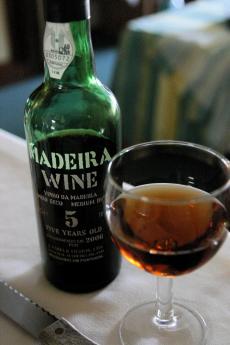
Madeira Wine class=
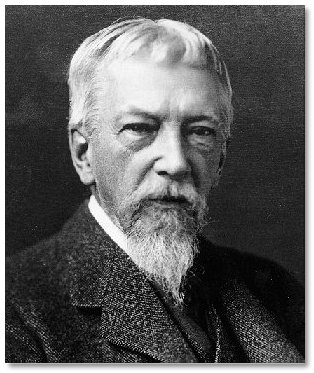
S. Weir Mitchell. Mitchell
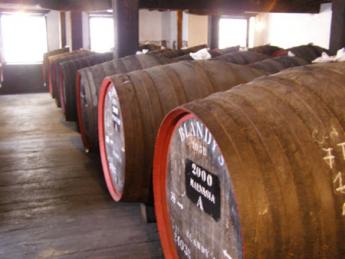
Madeira in a barrels
Curtis and the Book Trade
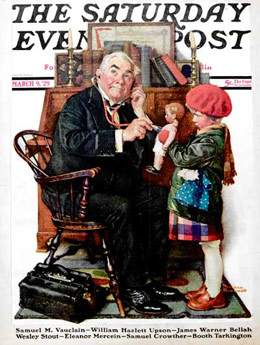
The Saturday Evening Post
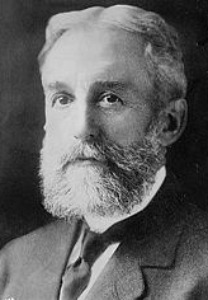
Cyrus H.K. Curtis
Madame Butterfly (2)
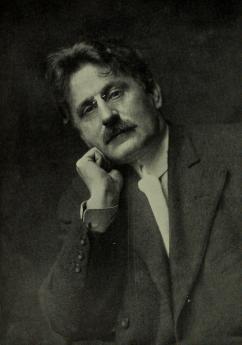
John Luther Long
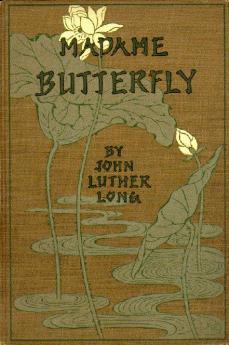
Madame Butterfly
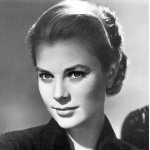
Grace Kelly
Philadelphia Gentlemen: The Making of a National Upper Class: E. Digby Baltzell ISBN-13: 978-0887387890
Amazon Swashbuckler
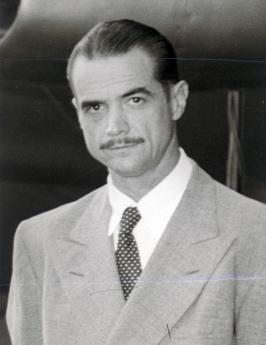
Howard Hughes
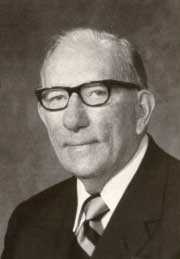
Claude Pepper

The Spruce Goose

Glomar Explorer
Authors, Writers, Poets, Reporters and Publishers in Laurel Hill Cemetery
Books by Philadelphians or about Philadelphia
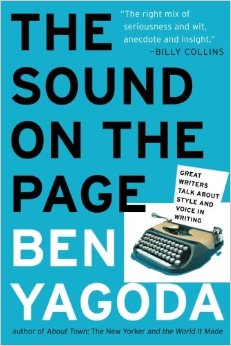
The Sound on the page
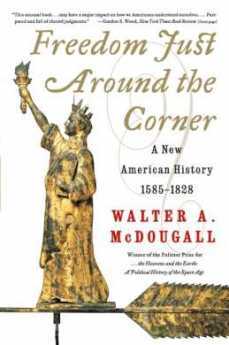
Freedom Just around the corner
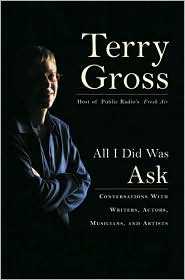
All I Did Was Ask
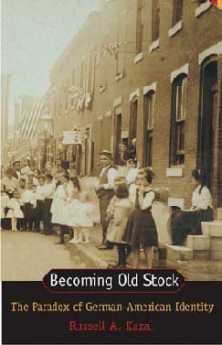
Old Stock
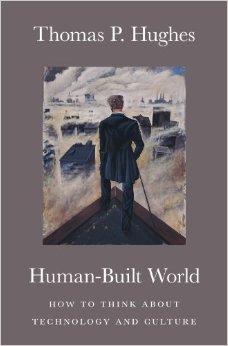
Human-Built the world
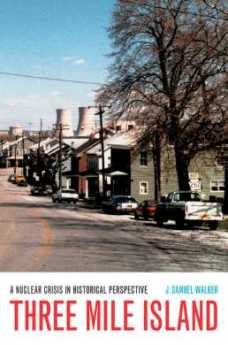
Three Mile Island
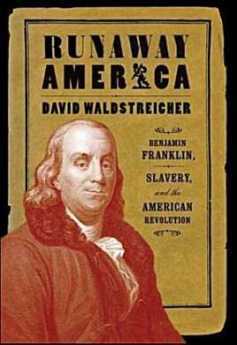
Runway America
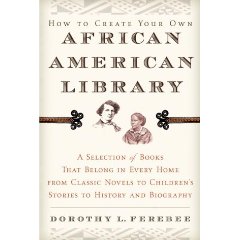
African America
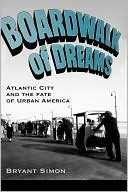
Boardwalk of Dreams
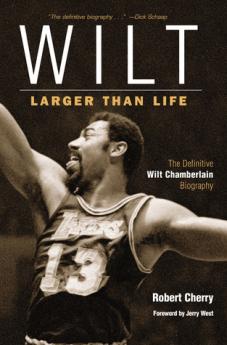
Wilt
Runaway America: Benjamin Franklin, Slavery, and the American Revolution, David Waldstreicher ISBN-13: 978-0809083152
Amazon
Freedom Just Around the Corner: A New American History: 1585-1828: Walter A. McDougall ISBN-13: 978-0060197896
Amazon Zane Grey, Dentist
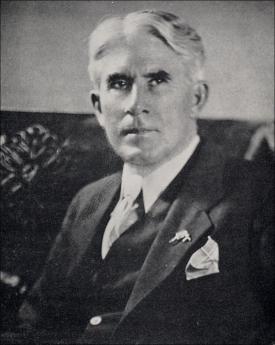
Zane Grey
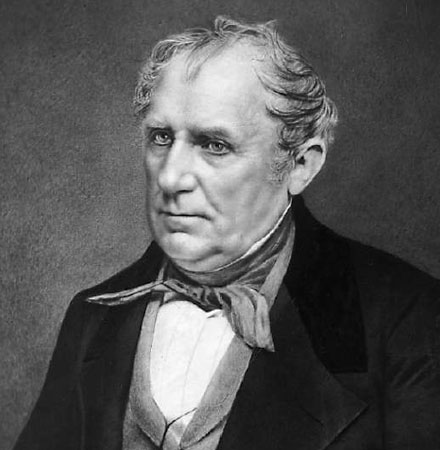
James Fenimore Cooper
TOAST TO E. DIGBY BALTZELL (1915-1996)
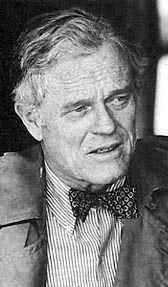
E. Digby Baltzell
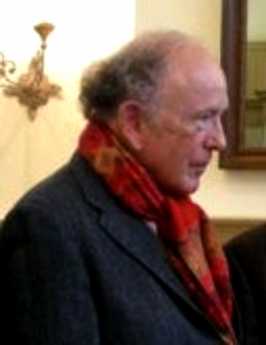
Theodore Friend Sr.
Doing Well, Doing Good.
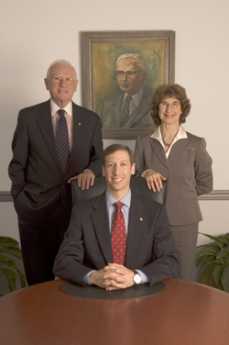
Lynmar Brock

Rotary Seal
Hold the Presses
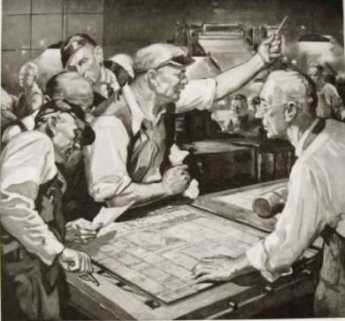
Stop the Presses
Avian Footnote

Saint Christopher Hospital
Blood and Honor: The Philadelphia Mafia, Lately

Blood and Honor
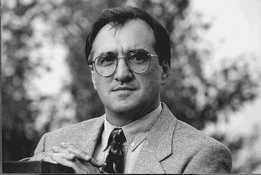
George Anastasia
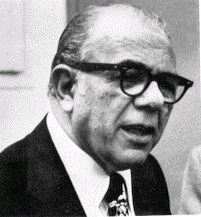
Angelo Bruno
Blood and Honor: Inside the Scarfo Mob, the Mafia's Most Violent Family George Anastasia ISBN-13: 978-0940159860
Amazon Before Bruno: The History of the Philadelphia Mafia Book 2 C. A. Morello ISBN: 978-0967733425
Amazon The Last Gangster George Anastasia ISBN-13: 978-0060544232
Amazon The Last Mouthpiece: The Man Who Dared to Defend the MobRobert F. Simone ISBN-13: 978-09401596932
Amazon When Bosses Ruled Philadelphia
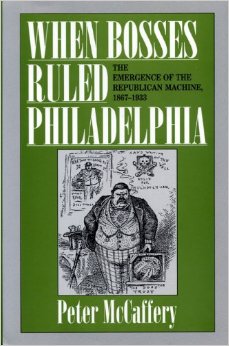
When Bosses Ruled
Philadelphia
When Bosses Ruled Philadelphia: Peter Mc Caffery ISBN-13: 978-0271034300
Amazon Future Directions for Book Authoring

TSR-80/100
The Virginian: A Philadelphian Goes West
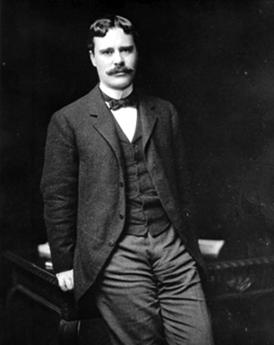
Owen Wister
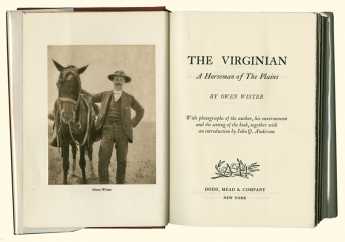
The Virginian: A Horseman of the Plains
Philadelphia Gentlemen: The Making of a National Upper Class: E. Digby Baltzell ISBN-13: 978-0887387890
Amazon A Time to Read Books

Retirement Reading

reading
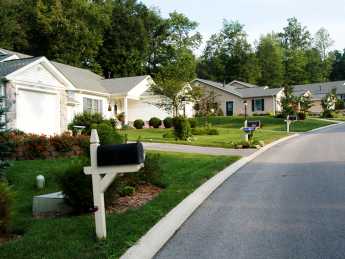
Retirement Community
History Writing and History Teaching
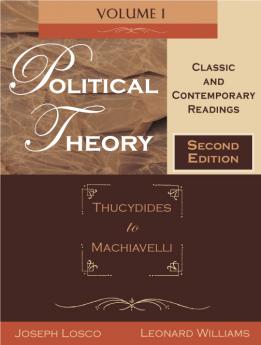
Thucydides and Machiavelli
Political Theory Classic and Contemporary Readings, Vol. 1: Thucydides to Machiavelli: Joseph Losco (Editor), Leonard A. Williams (Editor): ISBN: 978-1891487910
Amazon At Times, Charles Dickens Was a Little Immature
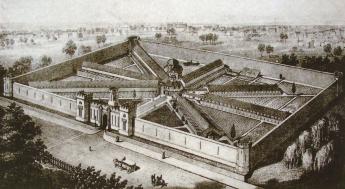
Eastern State Penitentiary Aerial View
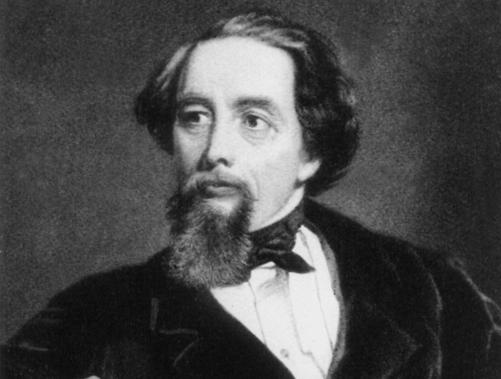
Charles Dickens
Posted by: cheapoair | Feb 13, 2012 9:31 AM
Posted by: esalerugs.com | Feb 13, 2012 9:10 AM
31 Blogs
Literary Figures in the Philadelphia Region
.
Logan, Franklin, Library
 James Logan and Benjamin Franklin were at the opposite ends of the social scale in Colonial Philadelphia and were to adopt strongly differing political views. But each recognized the intellectual power of the other, and they were fast friends.
James Logan and Benjamin Franklin were at the opposite ends of the social scale in Colonial Philadelphia and were to adopt strongly differing political views. But each recognized the intellectual power of the other, and they were fast friends.
Quotes from B. Franklin, Curmudgeon
 As he grew older, Franklin took less trouble to conceal what he really thought.
As he grew older, Franklin took less trouble to conceal what he really thought.
Rise and Fall of Books
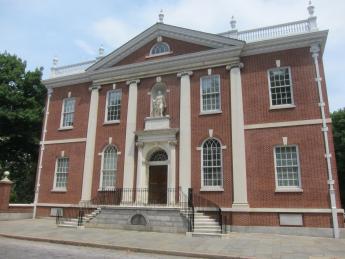 The The Director of America's first library sees books as mainly a 19th Century phenomenon.
The The Director of America's first library sees books as mainly a 19th Century phenomenon.
Edgar Allan Poe, 1809-1849
 Edgar Allan Poe may not have the highest literary esteem of any American, but he is probably our most famous poet. At the 200th anniversary of his birth, his disordered life symbolizes an era.
Edgar Allan Poe may not have the highest literary esteem of any American, but he is probably our most famous poet. At the 200th anniversary of his birth, his disordered life symbolizes an era.
French Philadelphia
 The French and the English fought for centuries; colonies seeking independence played one against the other. Our cooking, clothing, and architecture went French when we favored France; traces of many periods still reflect that fact.
The French and the English fought for centuries; colonies seeking independence played one against the other. Our cooking, clothing, and architecture went French when we favored France; traces of many periods still reflect that fact.
Fanny Kemble
 Frances Anne Kemble had it all: fame, beauty, wealth, personal friendship with real royalty and literary royalty. Beyond that, she caused a major new understanding of Shakespeare and was a major force in the abolition of slavery. Philadelphia wasn't big enough to hold her; perhaps no town was.
Frances Anne Kemble had it all: fame, beauty, wealth, personal friendship with real royalty and literary royalty. Beyond that, she caused a major new understanding of Shakespeare and was a major force in the abolition of slavery. Philadelphia wasn't big enough to hold her; perhaps no town was.
Fanny Kemble Takes the Train South, in 1838
 One of several important and influential books that Fanny wrote described her trip from the Philadelphia salons to the slave quarters of Georgia. It's well worth reading, even today.
One of several important and influential books that Fanny wrote described her trip from the Philadelphia salons to the slave quarters of Georgia. It's well worth reading, even today.
Harvard Progressives in Philadelphia
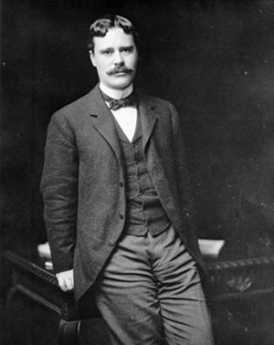 The Progressive movement of the early 20th century was a strange hodge-podge of political reformers, nostalgic aristocrats, would-be socialists, and anti-immigrant. The central figure was Theodore Roosevelt, traveling in strange company like Owen Wister, Robert M. LaFollette, Henry James, and Henry Adams. The Philadelphia link seems to have been through Harvard.
The Progressive movement of the early 20th century was a strange hodge-podge of political reformers, nostalgic aristocrats, would-be socialists, and anti-immigrant. The central figure was Theodore Roosevelt, traveling in strange company like Owen Wister, Robert M. LaFollette, Henry James, and Henry Adams. The Philadelphia link seems to have been through Harvard.
James A. Michener (1907-1997)
 < James A. Michener was a birthright Quaker from Doylestown, Pennsylvania, where he made his home when he wasn't traveling. He wrote 40 books, most notably "South Pacific", but lived a fairly simple smalltown life, meanwhile giving over $100 million to charity.
< James A. Michener was a birthright Quaker from Doylestown, Pennsylvania, where he made his home when he wasn't traveling. He wrote 40 books, most notably "South Pacific", but lived a fairly simple smalltown life, meanwhile giving over $100 million to charity.
Puritan Boston & Quaker Philadelphia
 The University of Pennsylvania Sociology professor E. Digby Baltzell drew attention to the strong persistence of earlier elite influences, using Philadelphia's Quakers and Boston's Puritans as prime examples.
The University of Pennsylvania Sociology professor E. Digby Baltzell drew attention to the strong persistence of earlier elite influences, using Philadelphia's Quakers and Boston's Puritans as prime examples.
The Franklin Inn
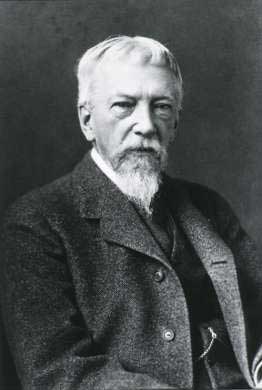 Founded by S. Weir Mitchell as a literary society, this little club hidden on Camac Street has been the center of Philadelphia's literary life for more than a century.
Founded by S. Weir Mitchell as a literary society, this little club hidden on Camac Street has been the center of Philadelphia's literary life for more than a century.
Madeira Party 2009
 In Colonial America, Madeira was what the upper crust drank.
In Colonial America, Madeira was what the upper crust drank.
Curtis and the Book Trade
 The Saturday Evening Post derived its revenue stream from advertisers, and died when that stream dried up. Too late, it was noticed that magazines of this type were a fundamental component of the book publishing industry.
The Saturday Evening Post derived its revenue stream from advertisers, and died when that stream dried up. Too late, it was noticed that magazines of this type were a fundamental component of the book publishing industry.
Madame Butterfly (2)
 It is Puccini's genius to take this story of two nasty Americans destroying an honorable Japanese girl, and using the same story with the same words, make it into a romantic woman destroyed by a hopeless, helpless love affair. /br>
It is Puccini's genius to take this story of two nasty Americans destroying an honorable Japanese girl, and using the same story with the same words, make it into a romantic woman destroyed by a hopeless, helpless love affair. /br>
Show Biz Image: Hepburn, Rogers, Kelly
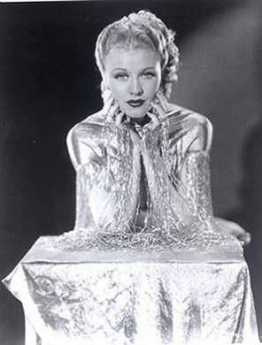 Hollywood presented a cartoon of the upper class during the Depression. World War II was soon to sober us up.
Hollywood presented a cartoon of the upper class during the Depression. World War II was soon to sober us up.
Swashbuckler
Your author is probably the only person still alive who attended the Senate hearing of Howard Hughes. There is probably a lot to this story yet to emerge.
Authors, Writers, Poets, Reporters and Publishers in Laurel Hill Cemetery
Authors, Writers, Poets, Reporters and Publishers in Laurel Hill. Naturally, lots of other people are buried there, too.
Books by Philadelphians or about Philadelphia
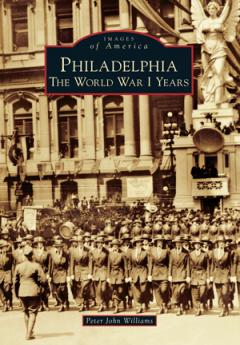 A sampling of great books by Philadelphians, and great books about Philadelphia.
A sampling of great books by Philadelphians, and great books about Philadelphia.
Zane Grey, Dentist
 Owen Wister may have invented the theme of the noble cowboy, but Zane Grey made it famous.
Owen Wister may have invented the theme of the noble cowboy, but Zane Grey made it famous.
TOAST TO E. DIGBY BALTZELL (1915-1996)
 A toast to E. Digby Baltzell (1915-1996), given by Theodore Friend, Sr. at the Franklin Inn Club annual dinner on Franklin's birthday, where toasts are customary.
A toast to E. Digby Baltzell (1915-1996), given by Theodore Friend, Sr. at the Franklin Inn Club annual dinner on Franklin's birthday, where toasts are customary.
Doing Well, Doing Good.
 A board member of Rotary International recently ran an Afghanistan relief program and wrote a novel about the Battle of Brandywine. He's a Quaker, lives on a farm, and is chairman of the boards of several organizations.
A board member of Rotary International recently ran an Afghanistan relief program and wrote a novel about the Battle of Brandywine. He's a Quaker, lives on a farm, and is chairman of the boards of several organizations.
Hold the Presses
 The Clinton Health Plan was dead on arrival, but the media didn't know that.
The Clinton Health Plan was dead on arrival, but the media didn't know that.
Avian Footnote

Blood and Honor: The Philadelphia Mafia, Lately
 From 1980 to 2000, mob rub-outs and long prison terms for mobsters seemed a constant occurrence in Philadelphia. In the 21st century the underworld went quiet.
From 1980 to 2000, mob rub-outs and long prison terms for mobsters seemed a constant occurrence in Philadelphia. In the 21st century the underworld went quiet.
When Bosses Ruled Philadelphia
 Starting with the gas works, a scholar makes the point that modern big-city political machines are financed by Utility companies. Utilities prefer one-stop payoffs to a lot of petty grafters, and being monopolies, they pass the cost to the customers.
Starting with the gas works, a scholar makes the point that modern big-city political machines are financed by Utility companies. Utilities prefer one-stop payoffs to a lot of petty grafters, and being monopolies, they pass the cost to the customers.
Future Directions for Book Authoring
 Personal computers have already revolutionized book authorship by greatly expanding it, and revolutionized book publishing by drowning it in authorship. What comes next?
Personal computers have already revolutionized book authorship by greatly expanding it, and revolutionized book publishing by drowning it in authorship. What comes next?
The Virginian: A Philadelphian Goes West
 Owen Wister, that unchallenged example of the Philadelphia Gentleman, established his literary reputation as creator of the American Cowboy in his first novel.
Owen Wister, that unchallenged example of the Philadelphia Gentleman, established his literary reputation as creator of the American Cowboy in his first novel.
A Time to Read Books
 Retirement is a good time to read all those books you meant to read. But certain things stand in the way.
Retirement is a good time to read all those books you meant to read. But certain things stand in the way.
History Writing and History Teaching
 Teaching history is remarkably similar to writing history, at least in its pattern of construction. But there is one exception.
Teaching history is remarkably similar to writing history, at least in its pattern of construction. But there is one exception.
At Times, Charles Dickens Was a Little Immature
 Eastern Pen gets a bad rap.
Eastern Pen gets a bad rap.